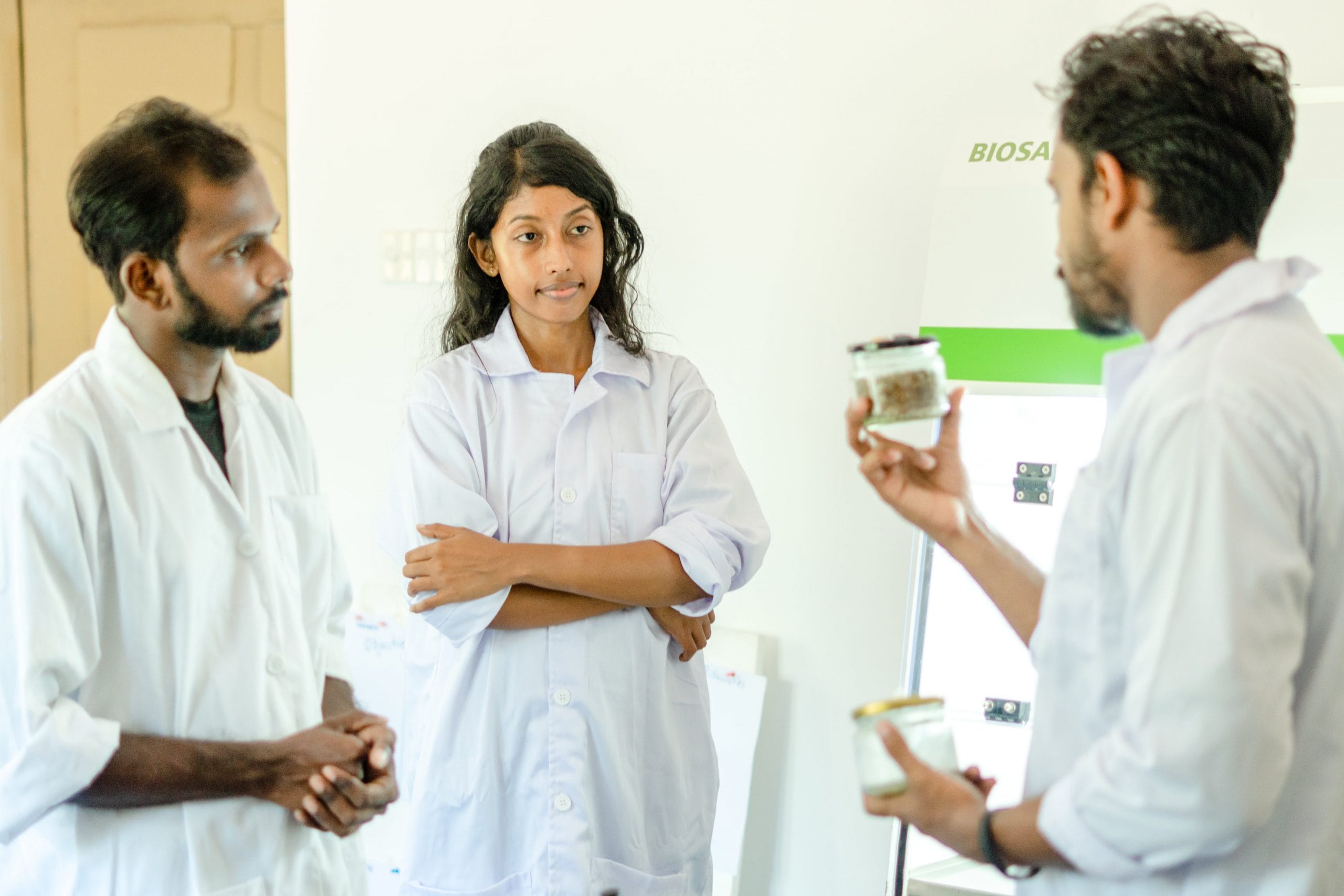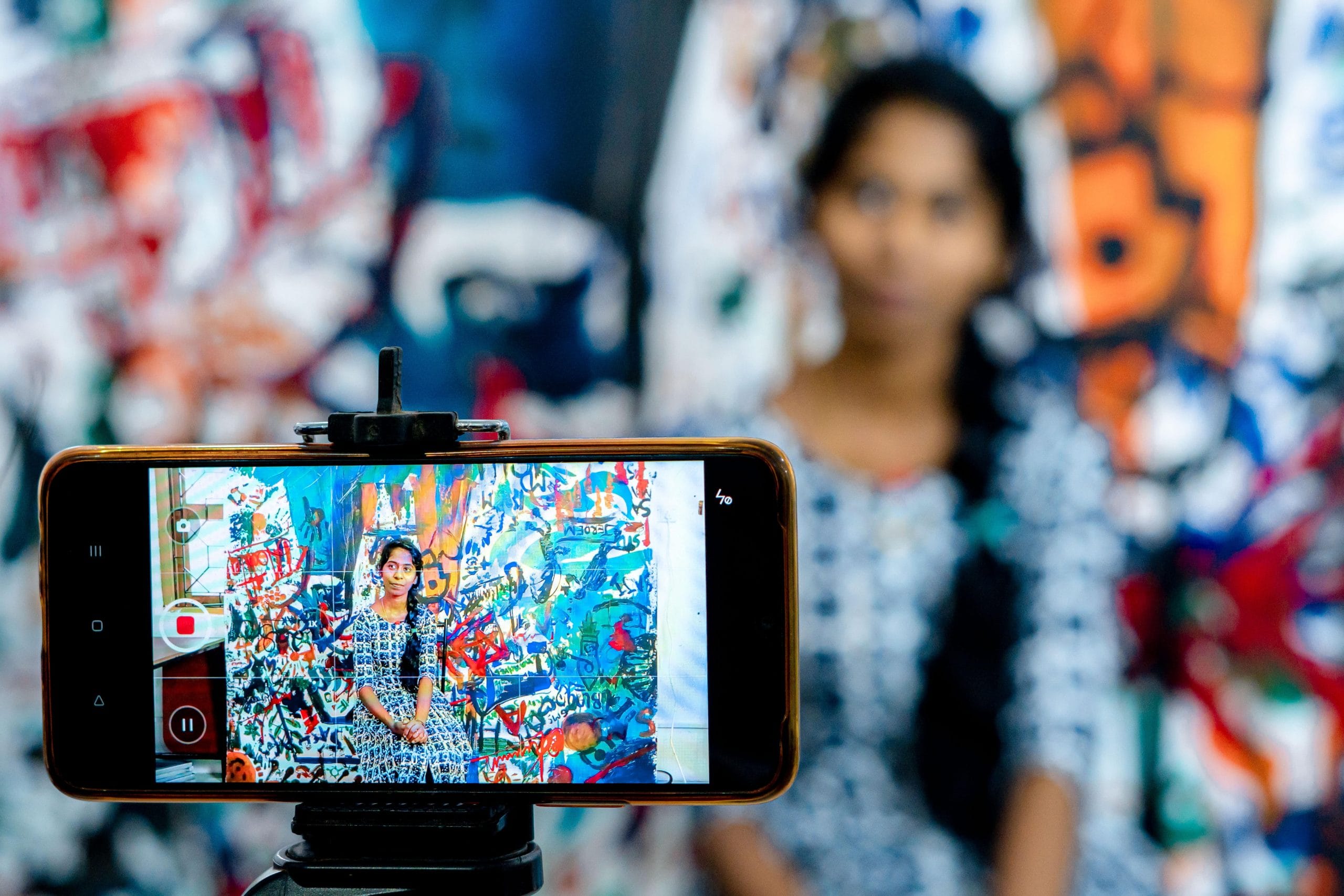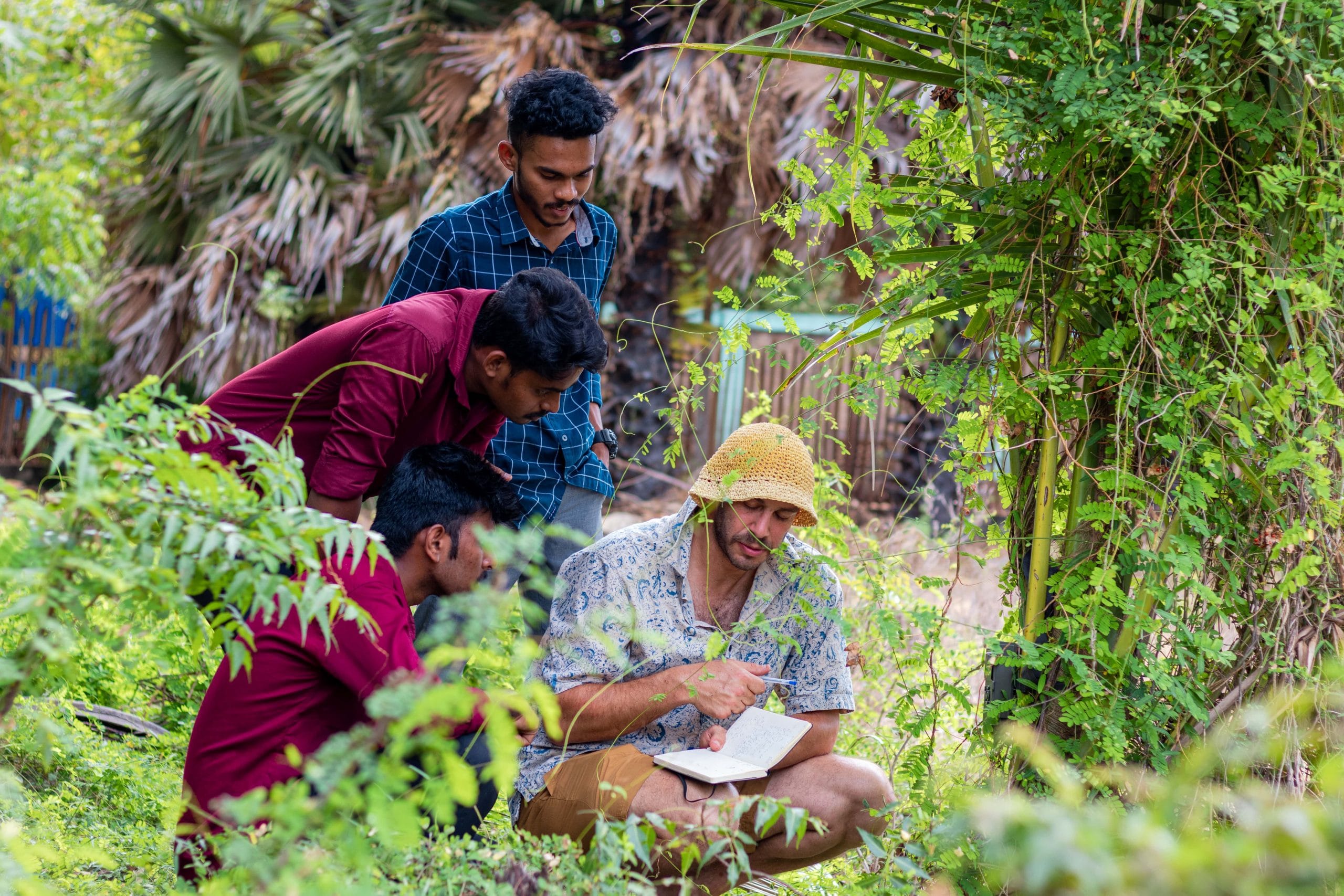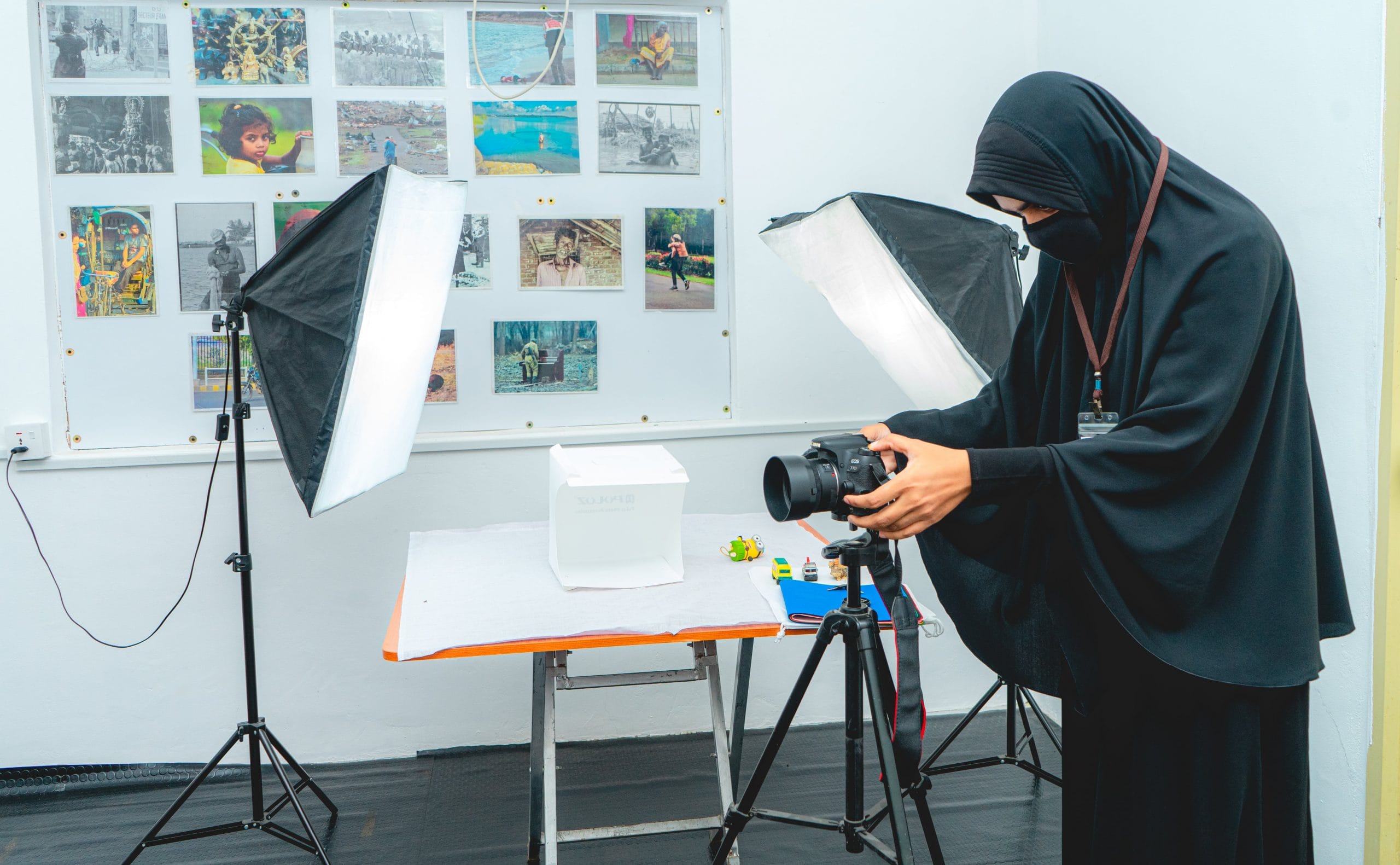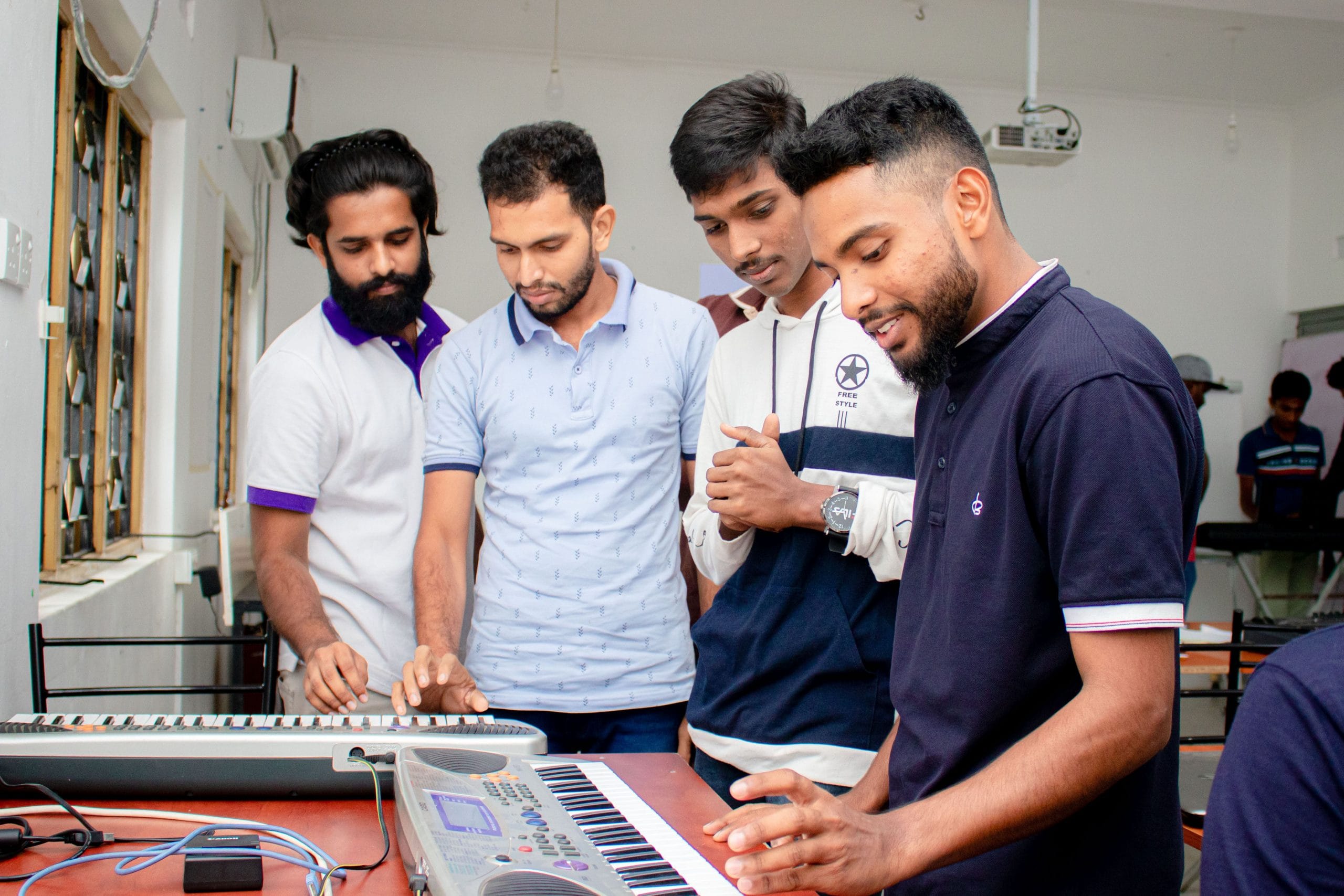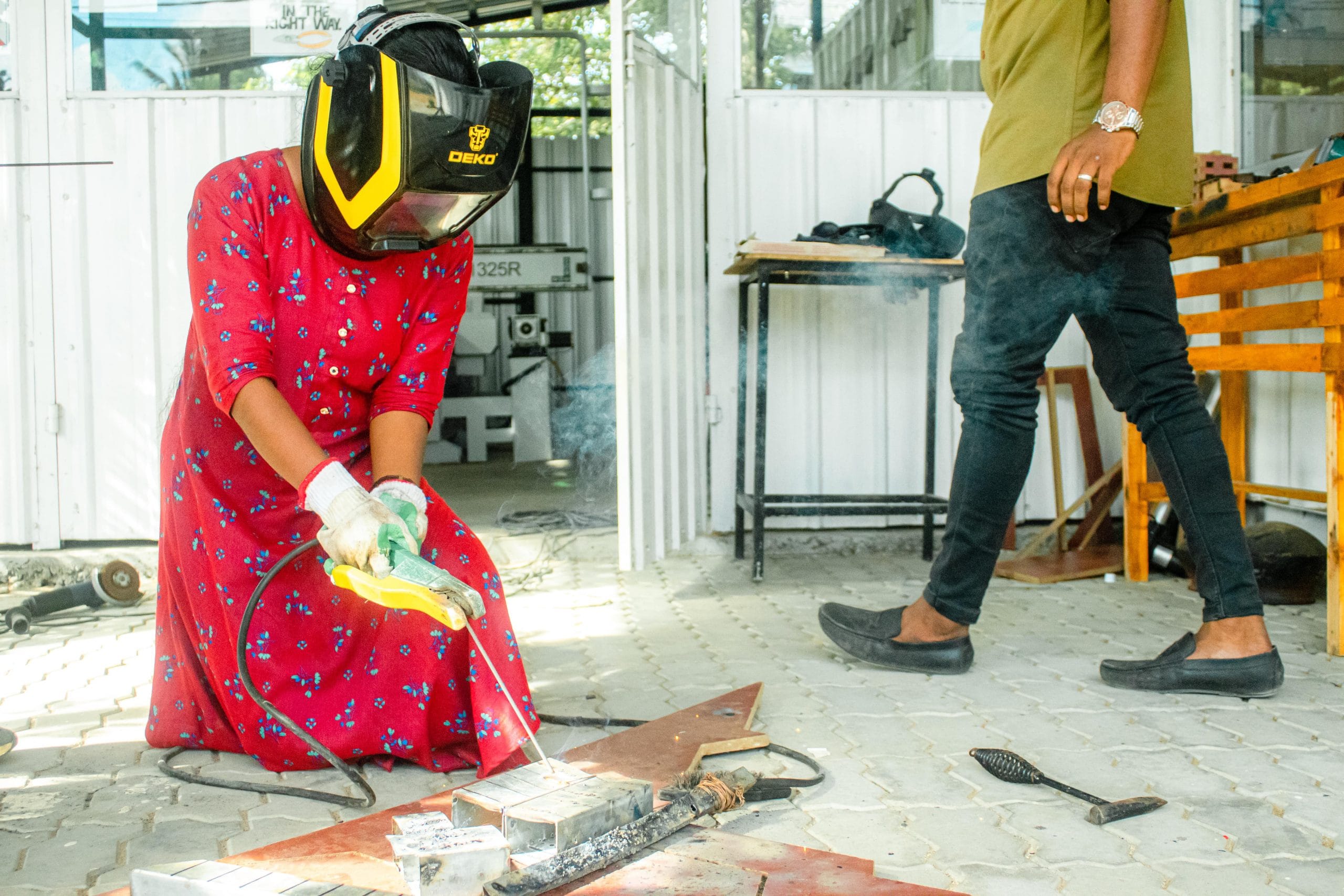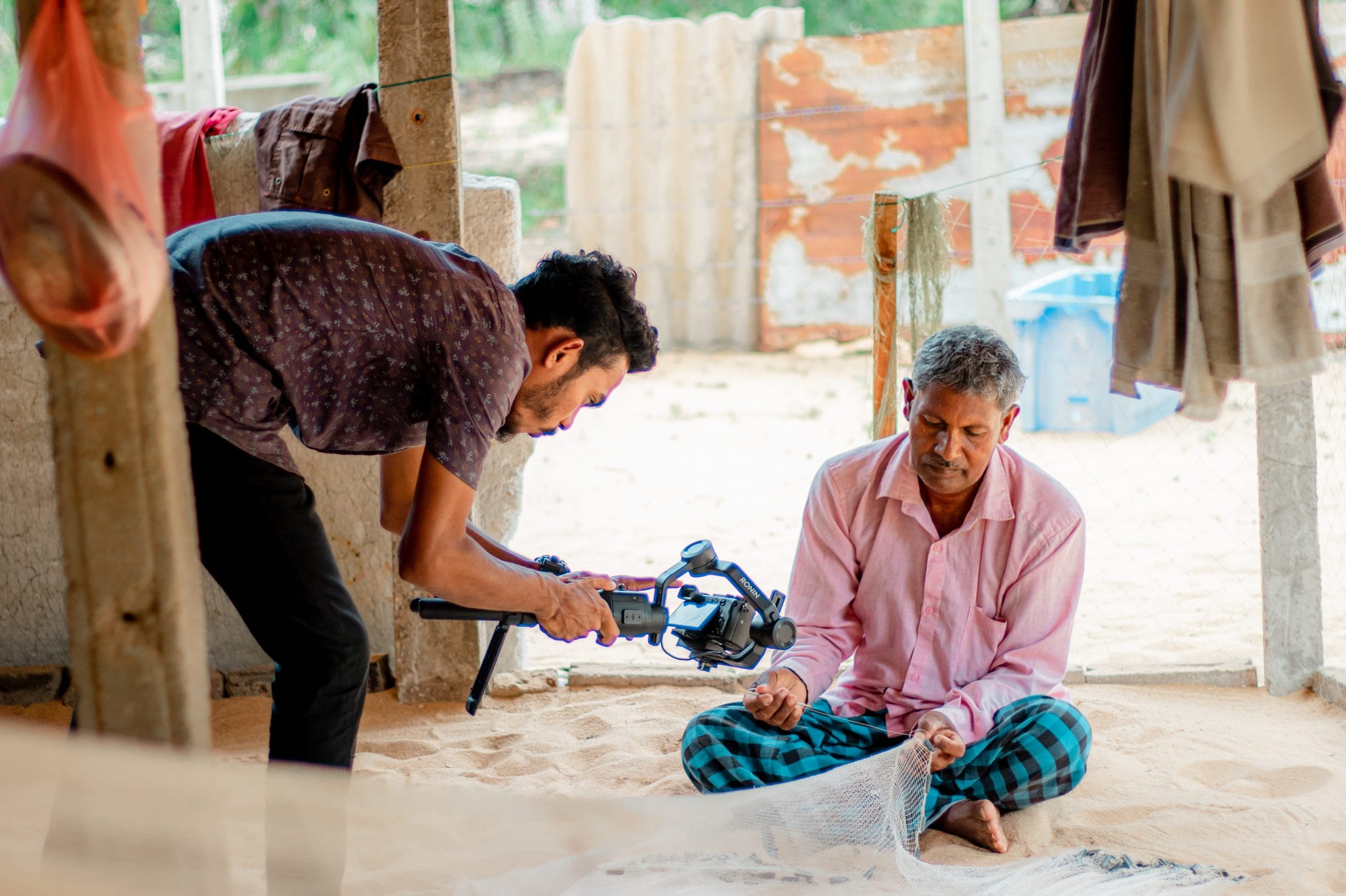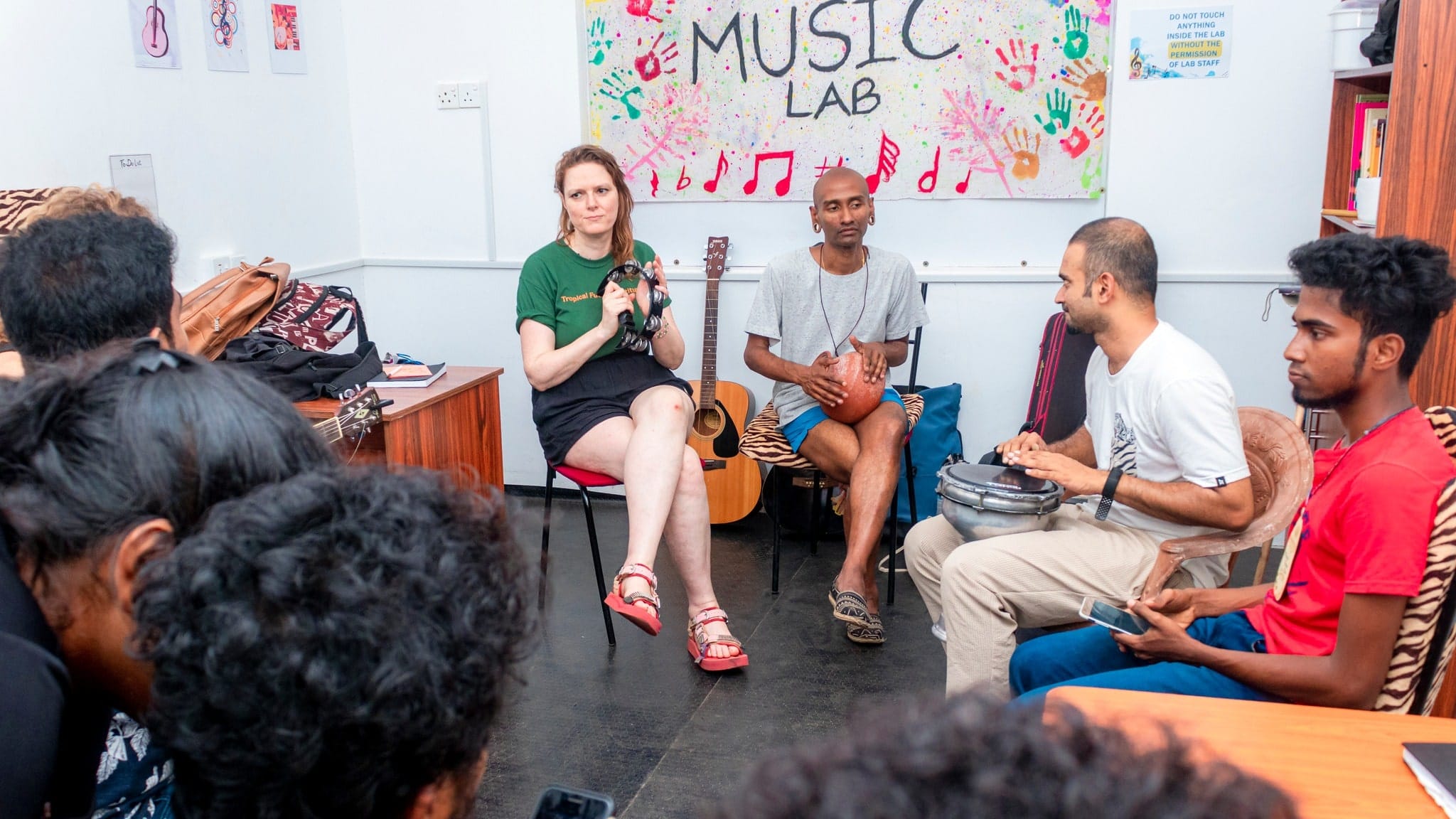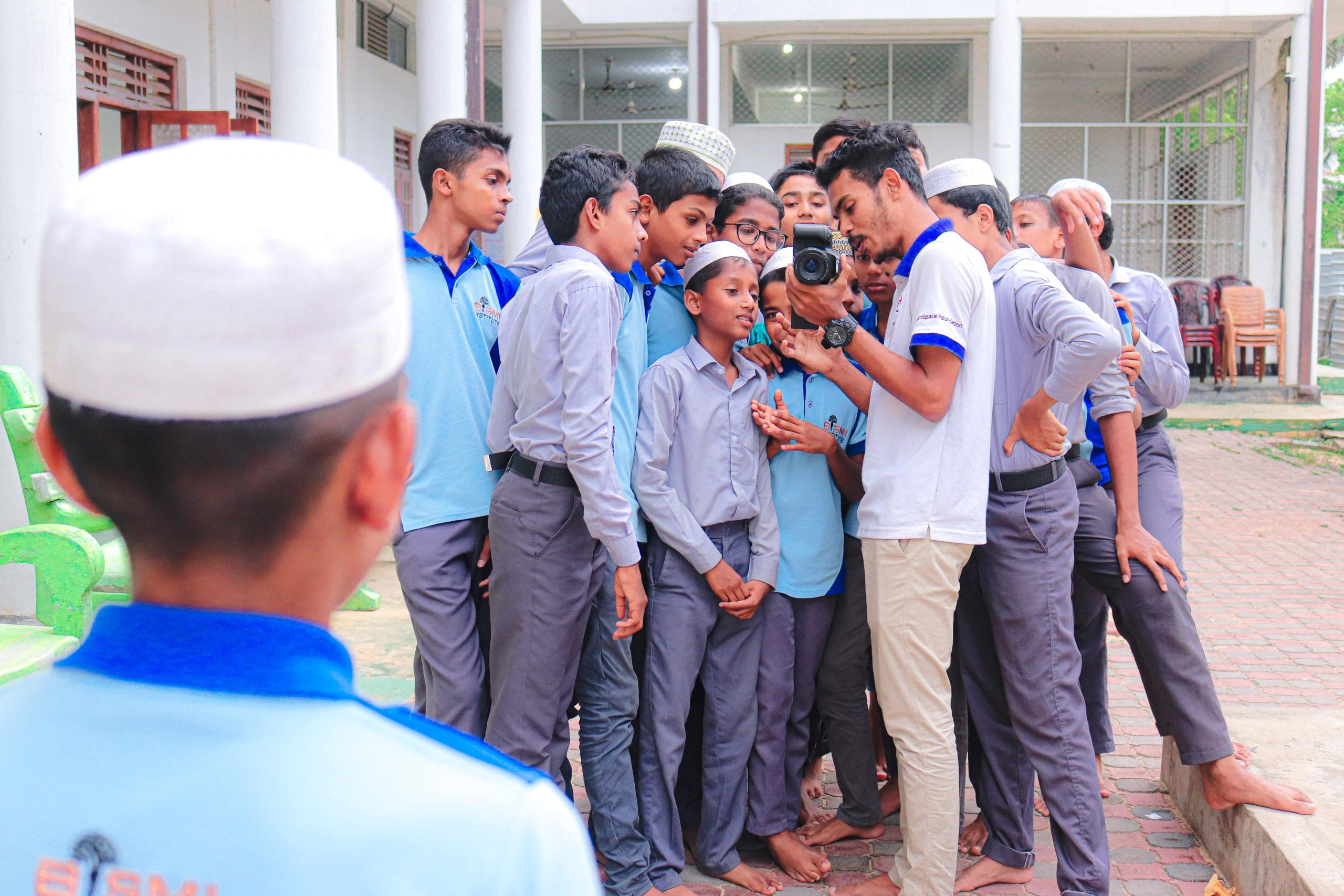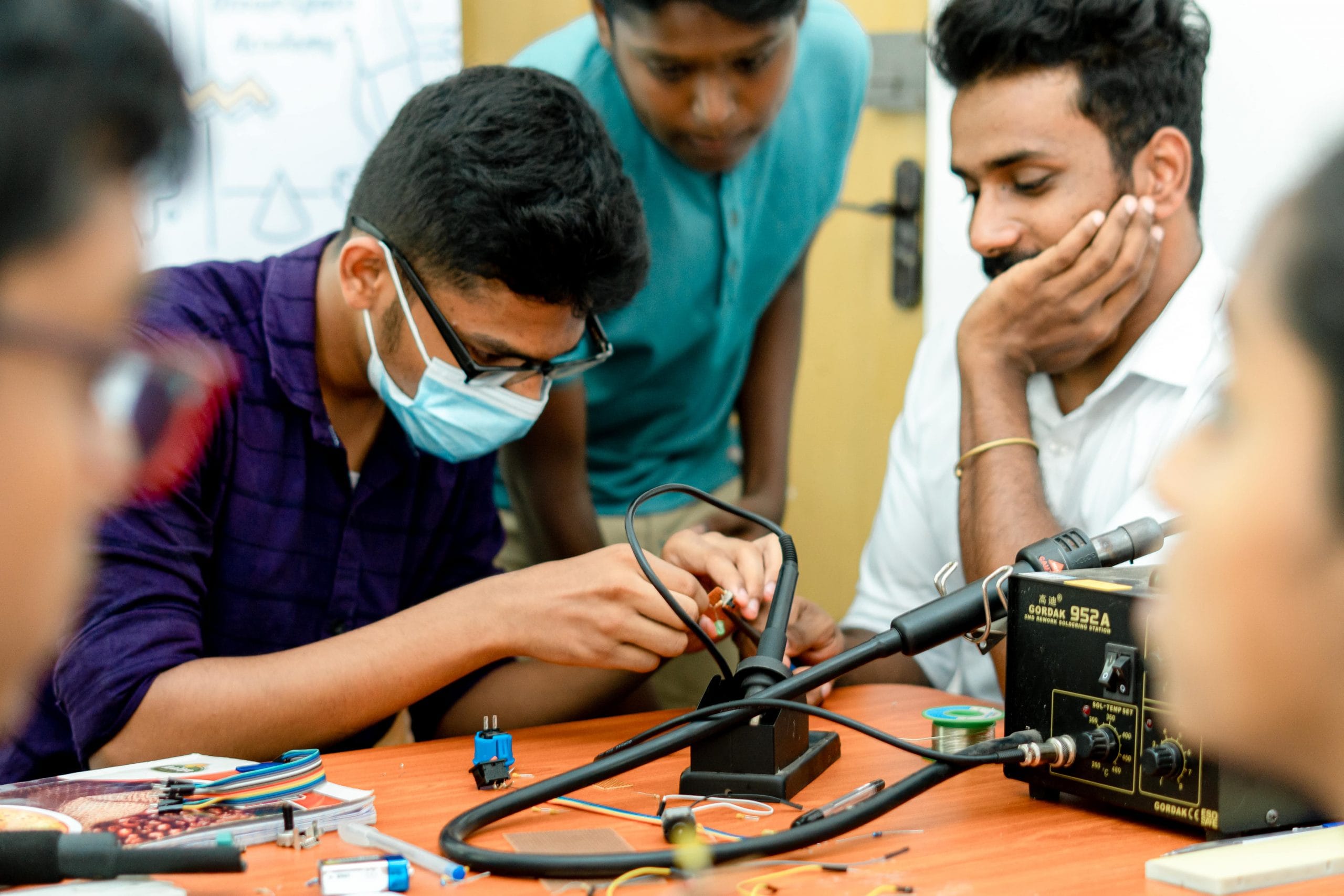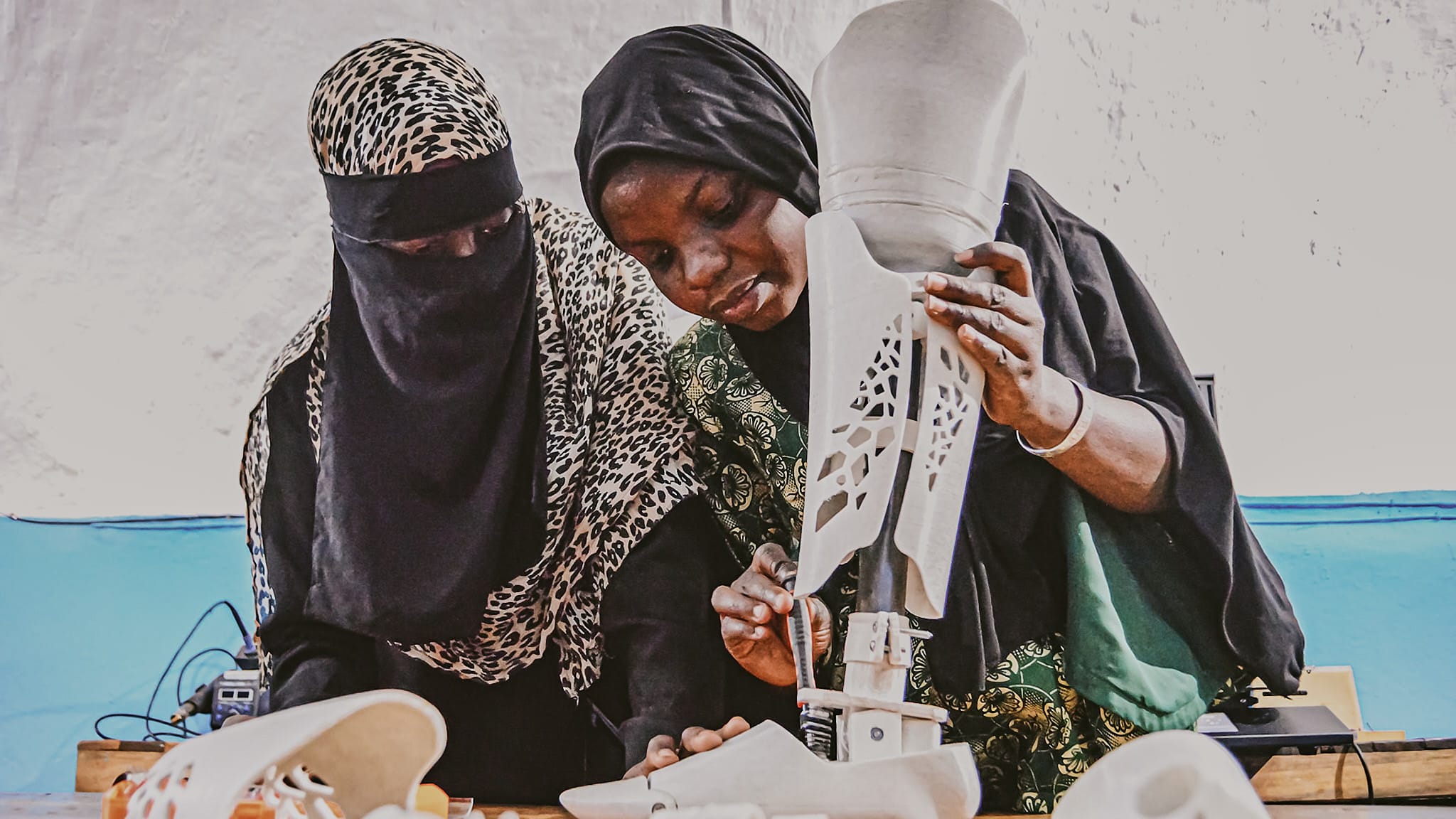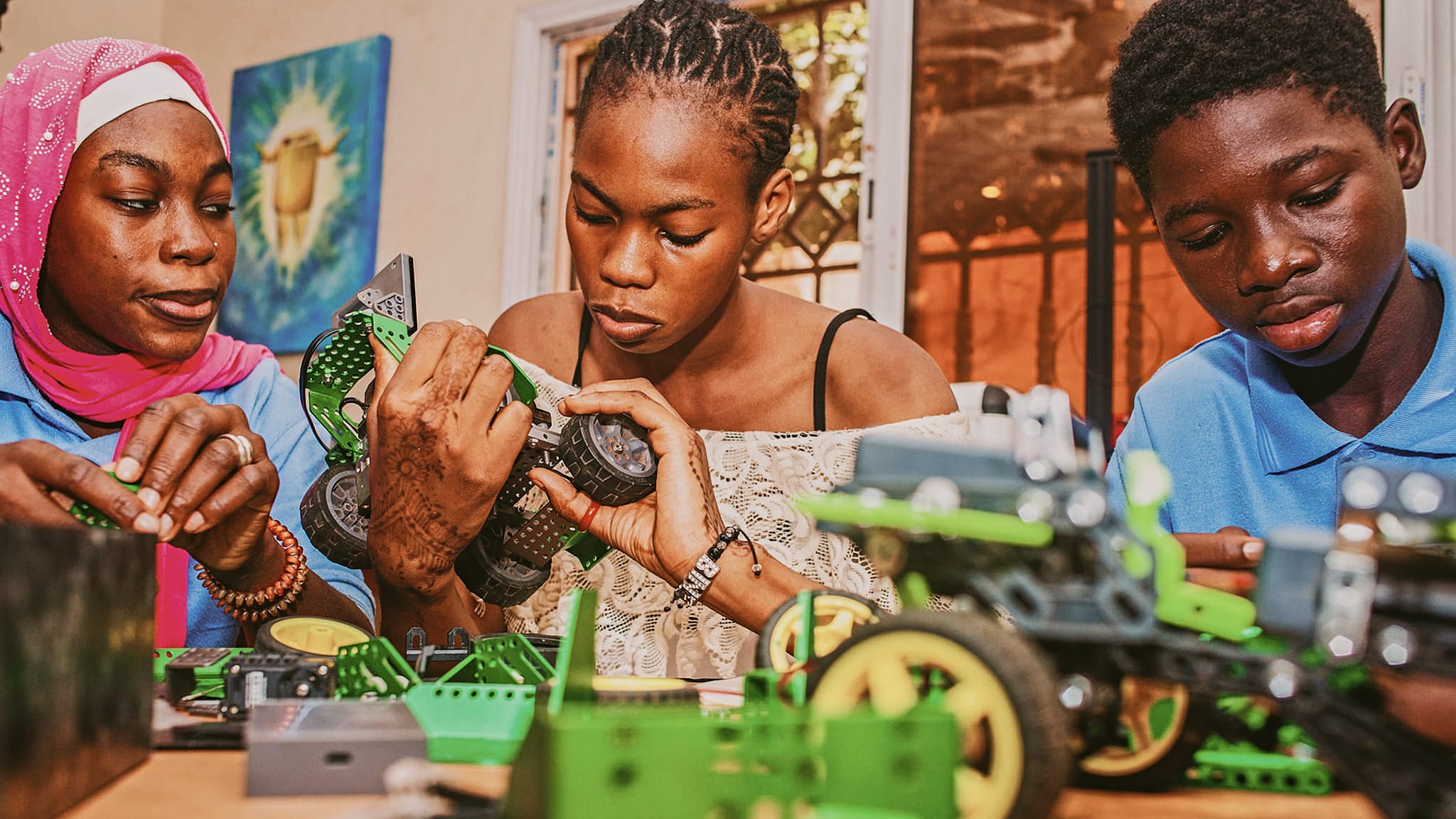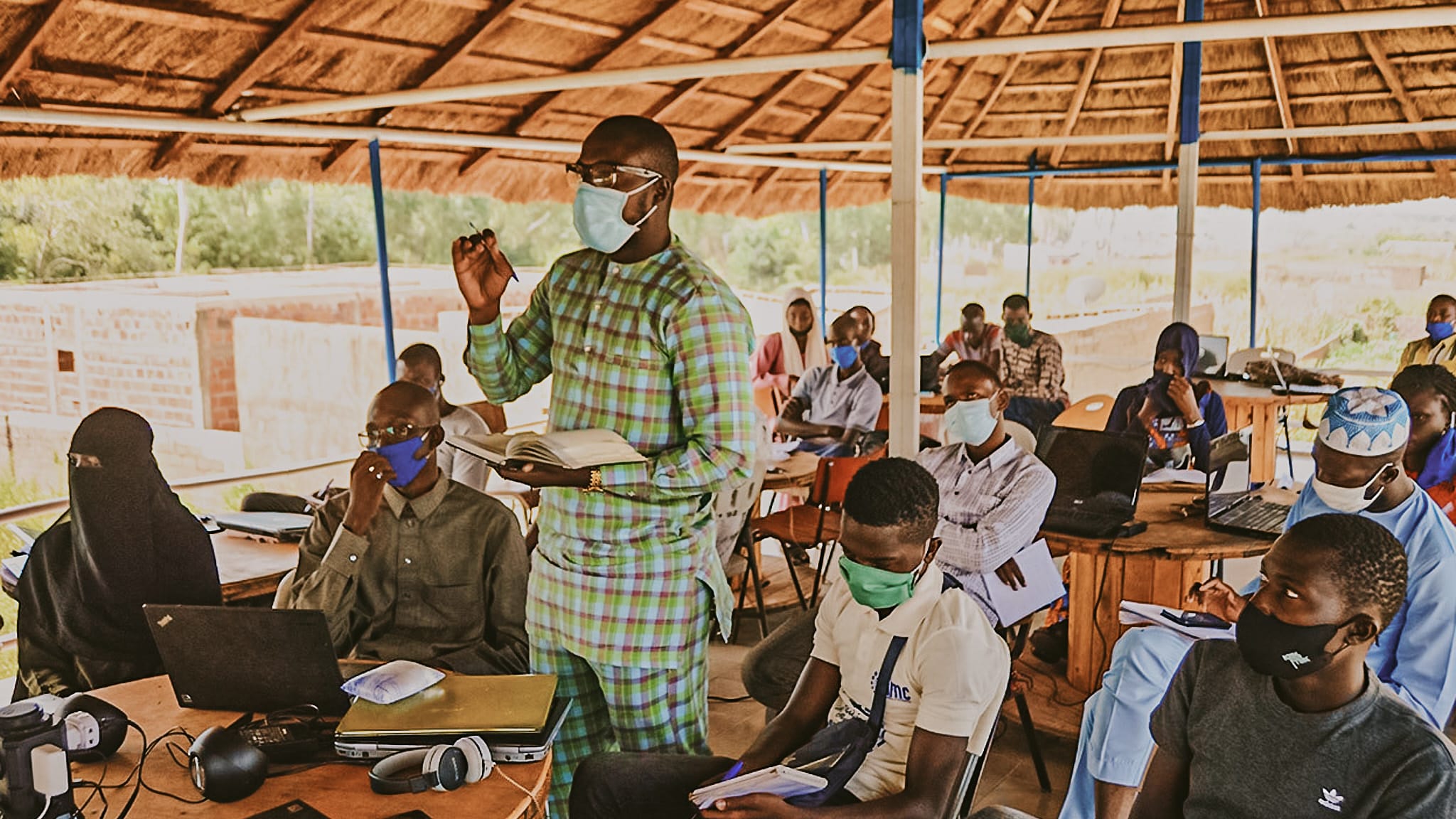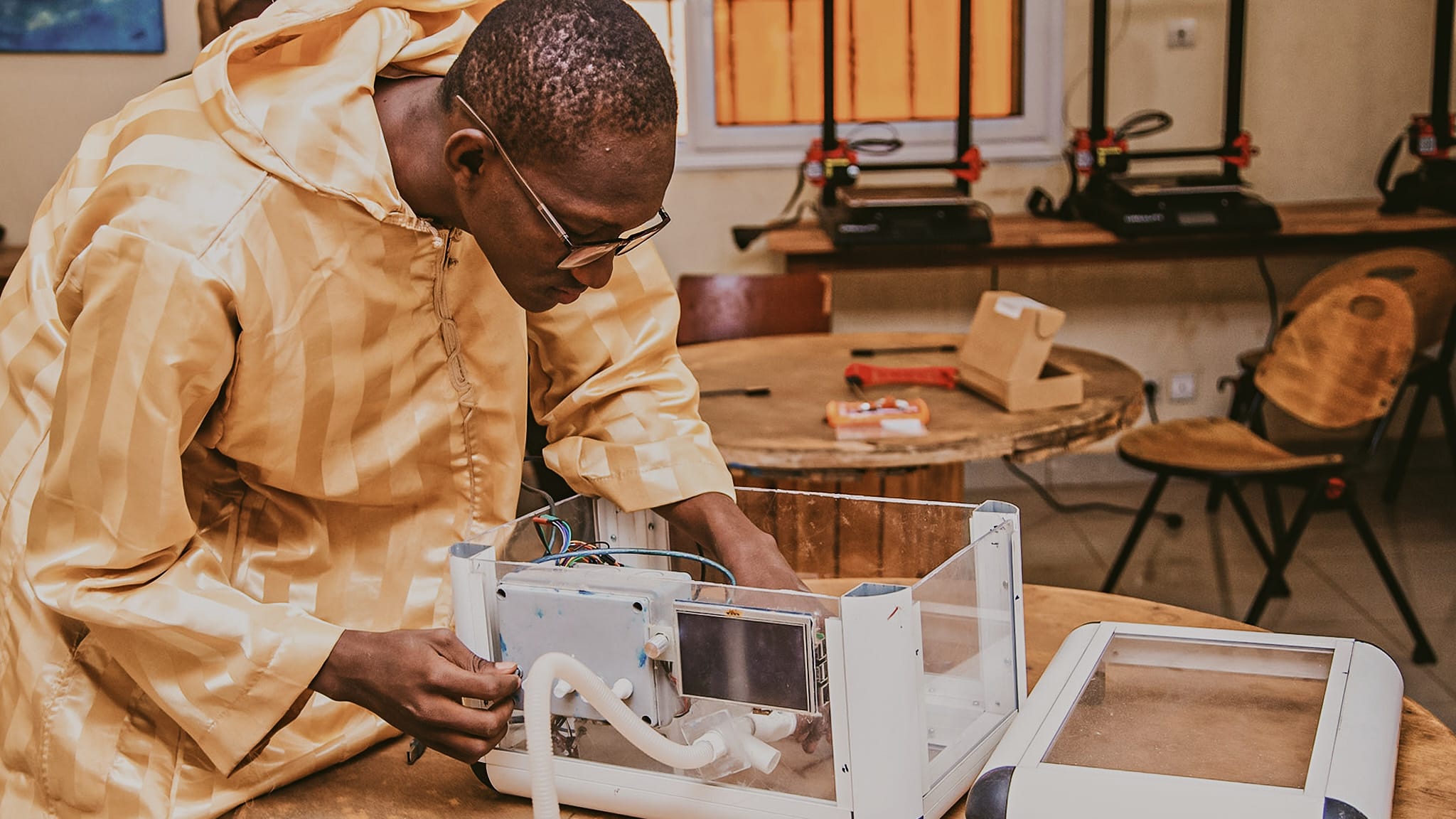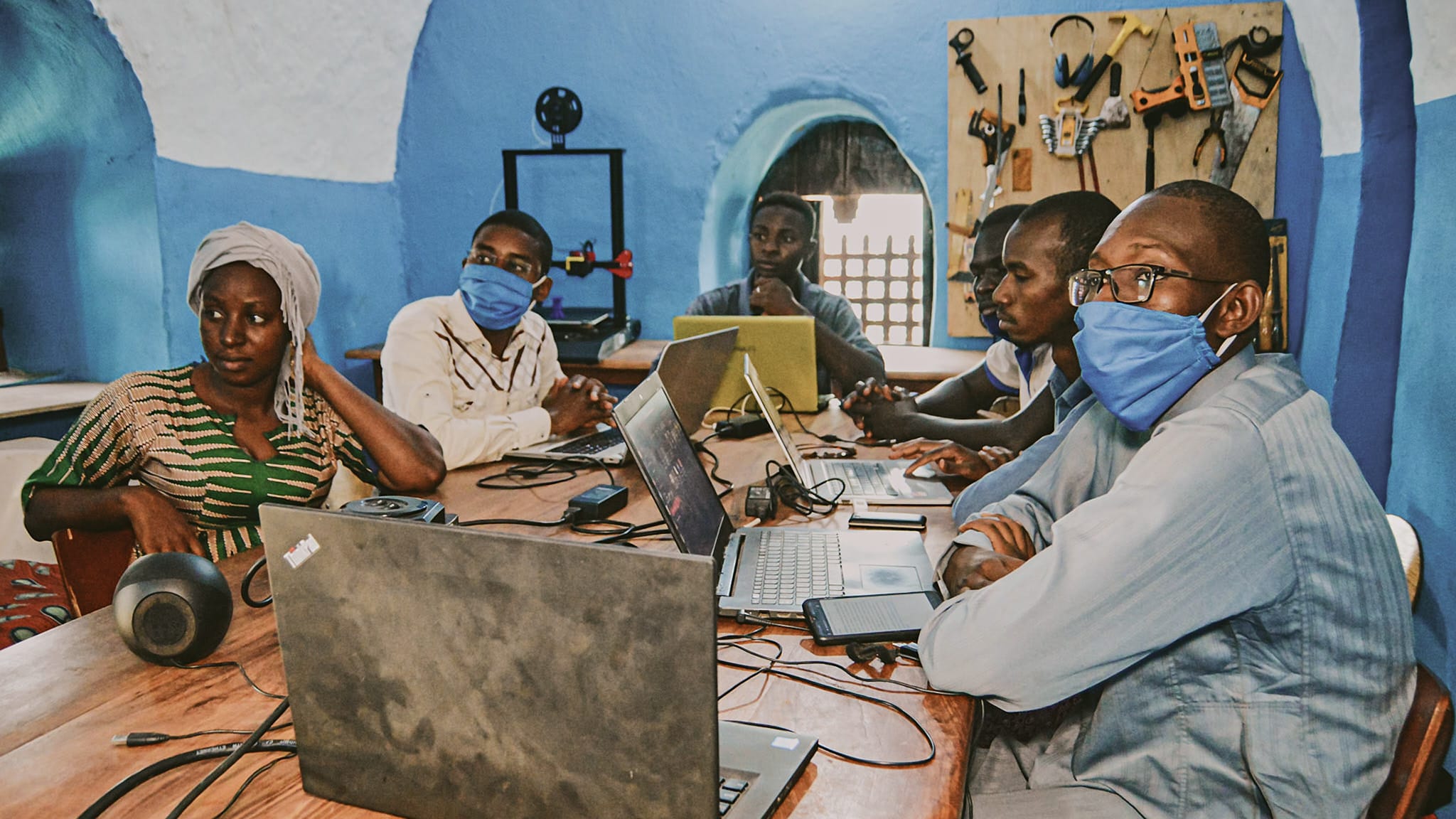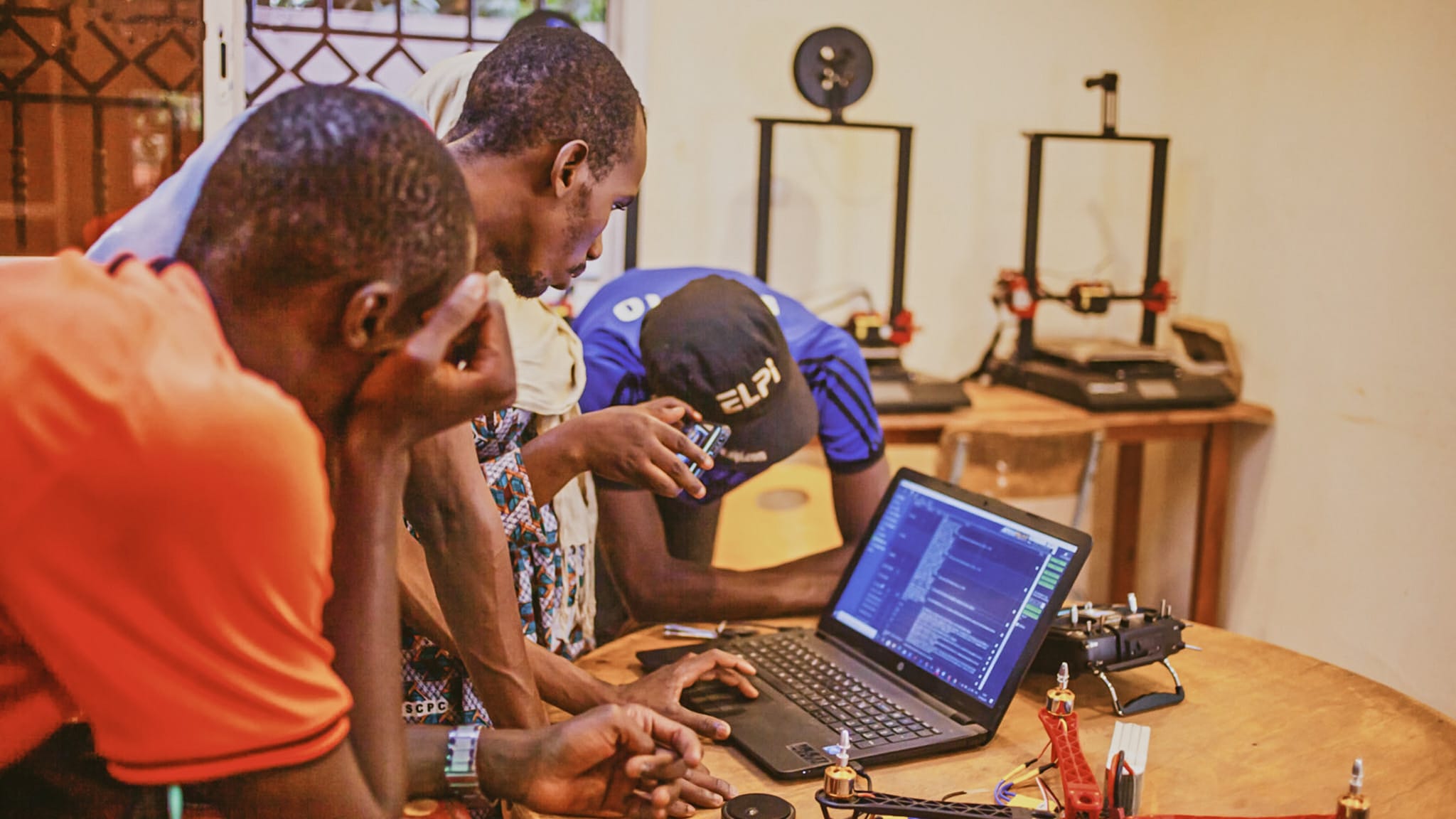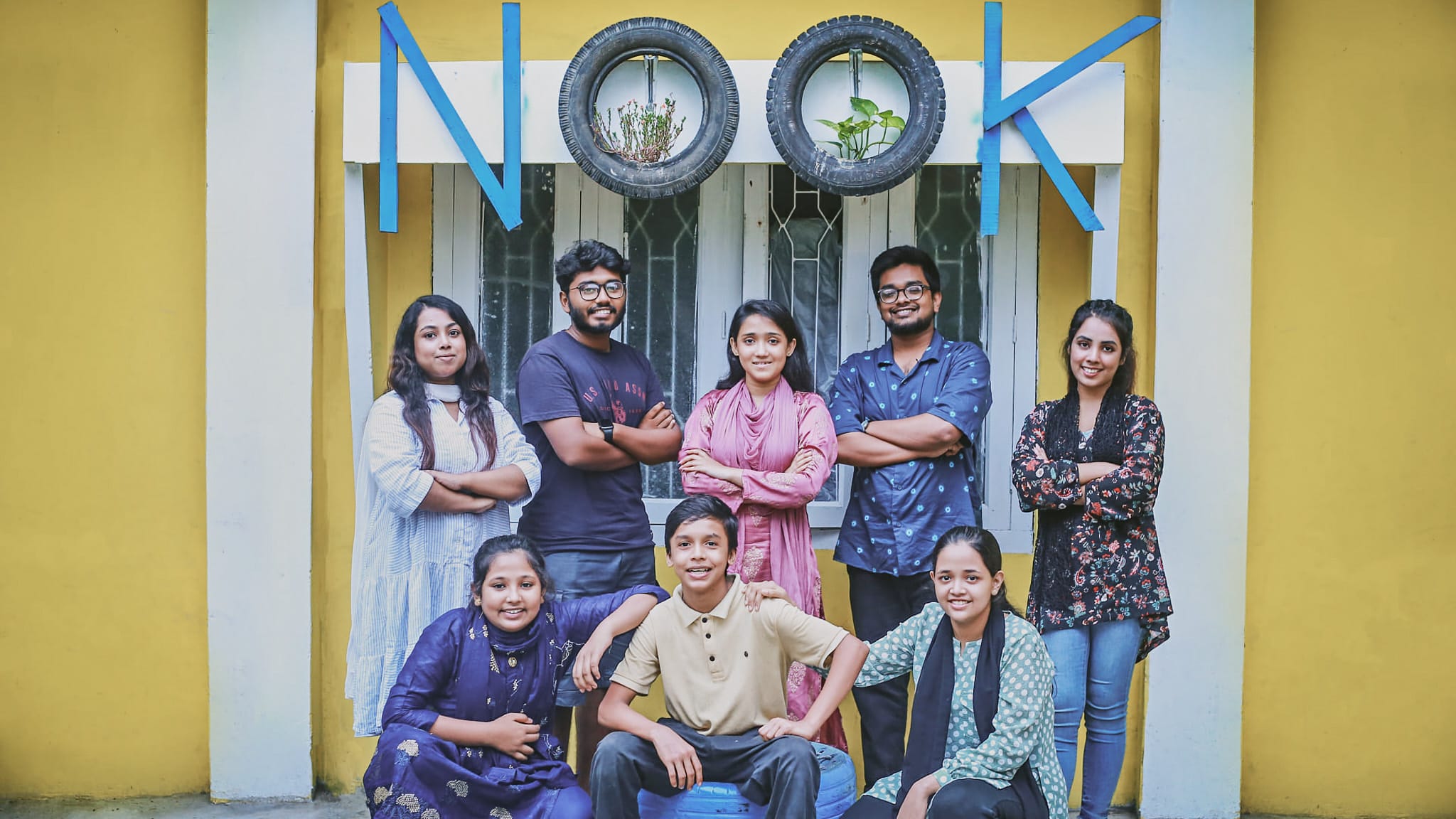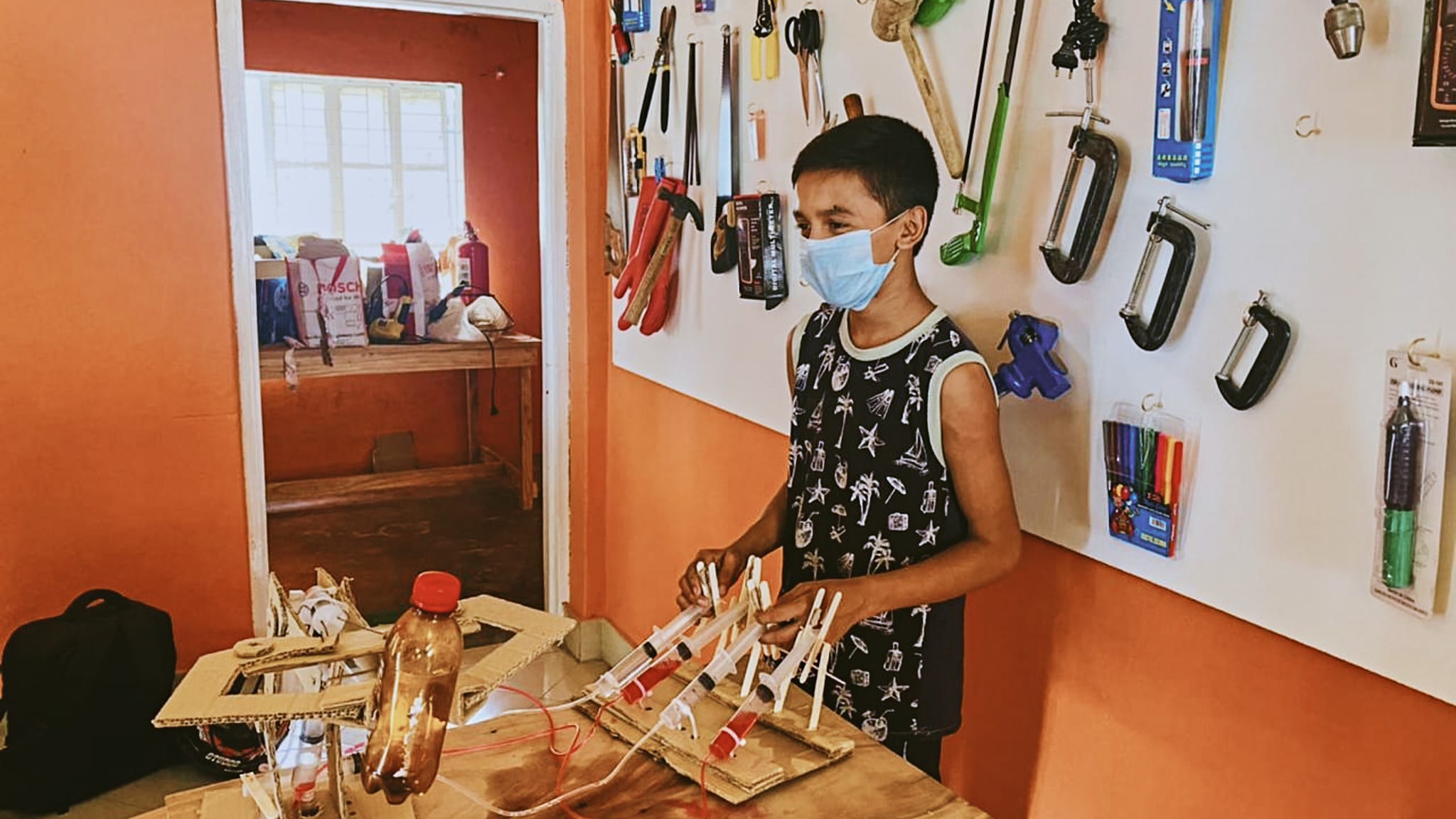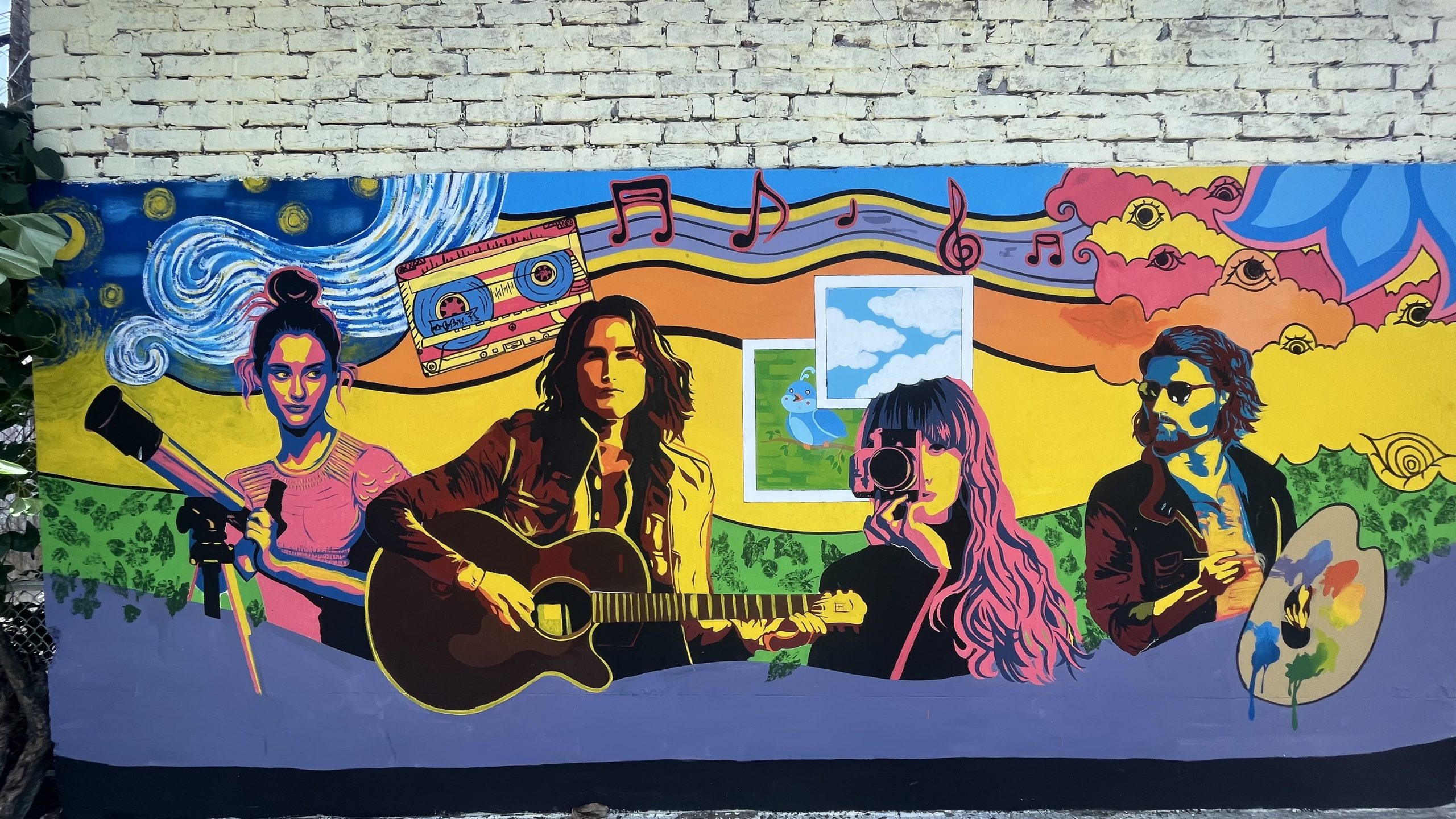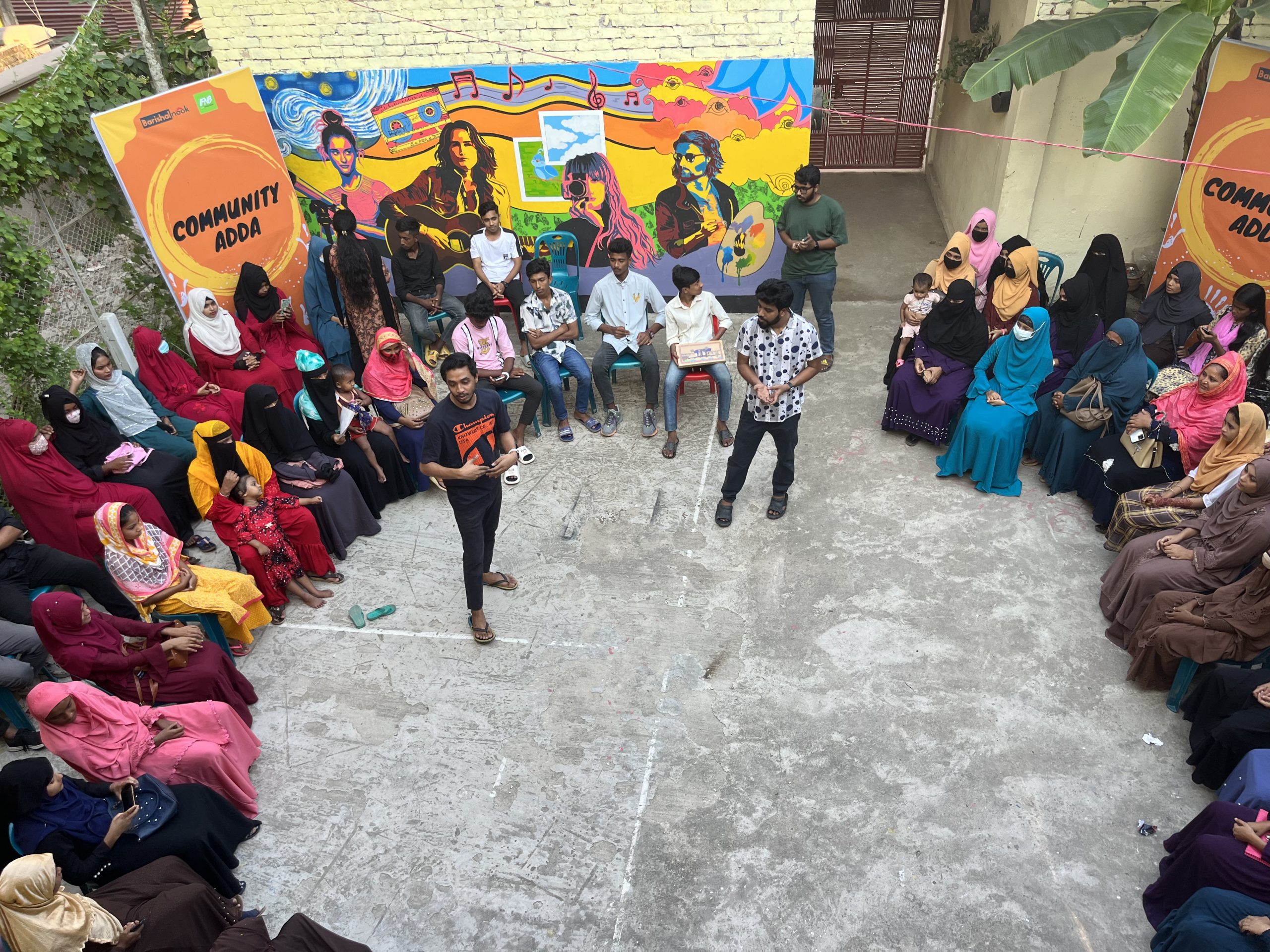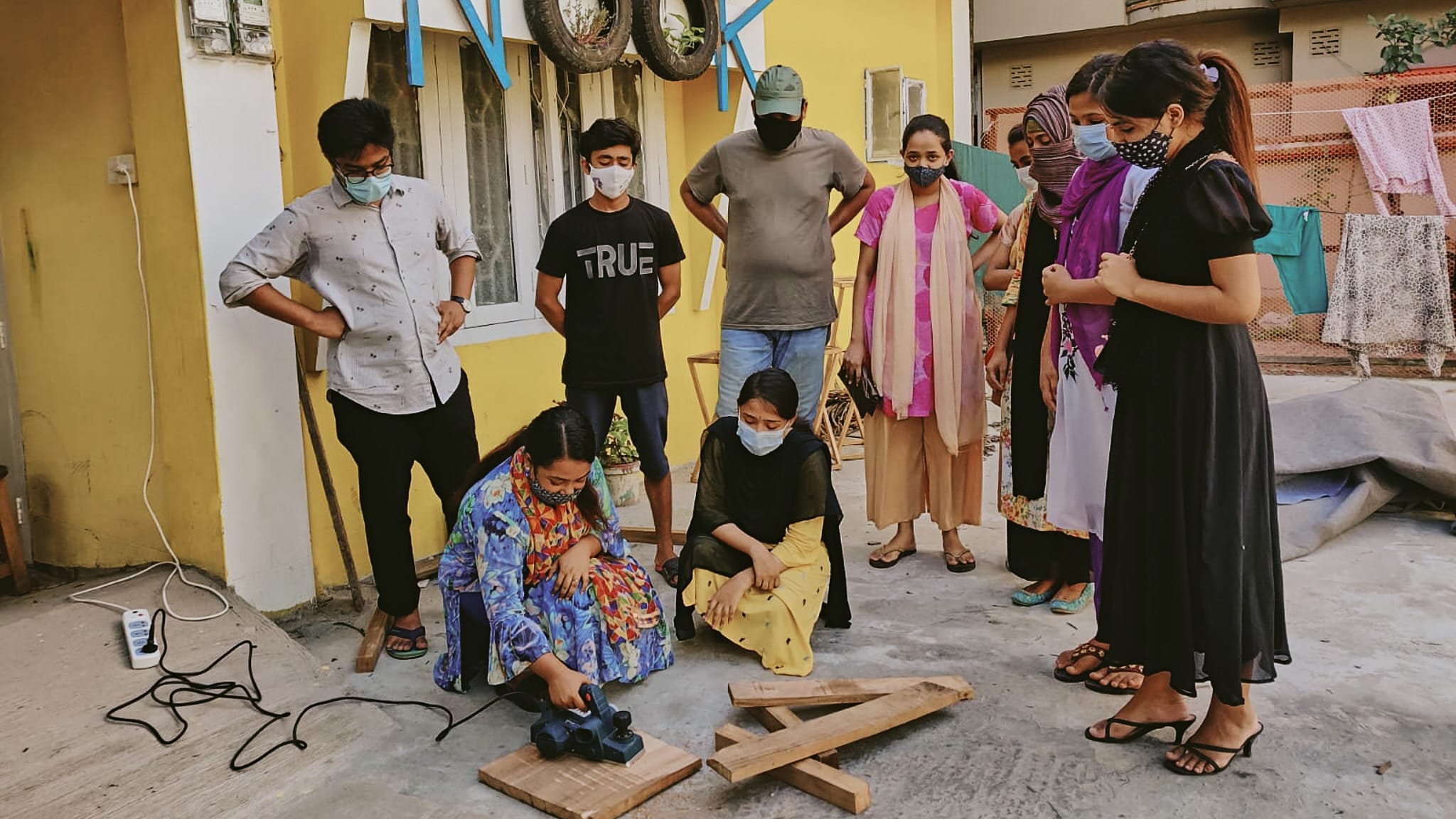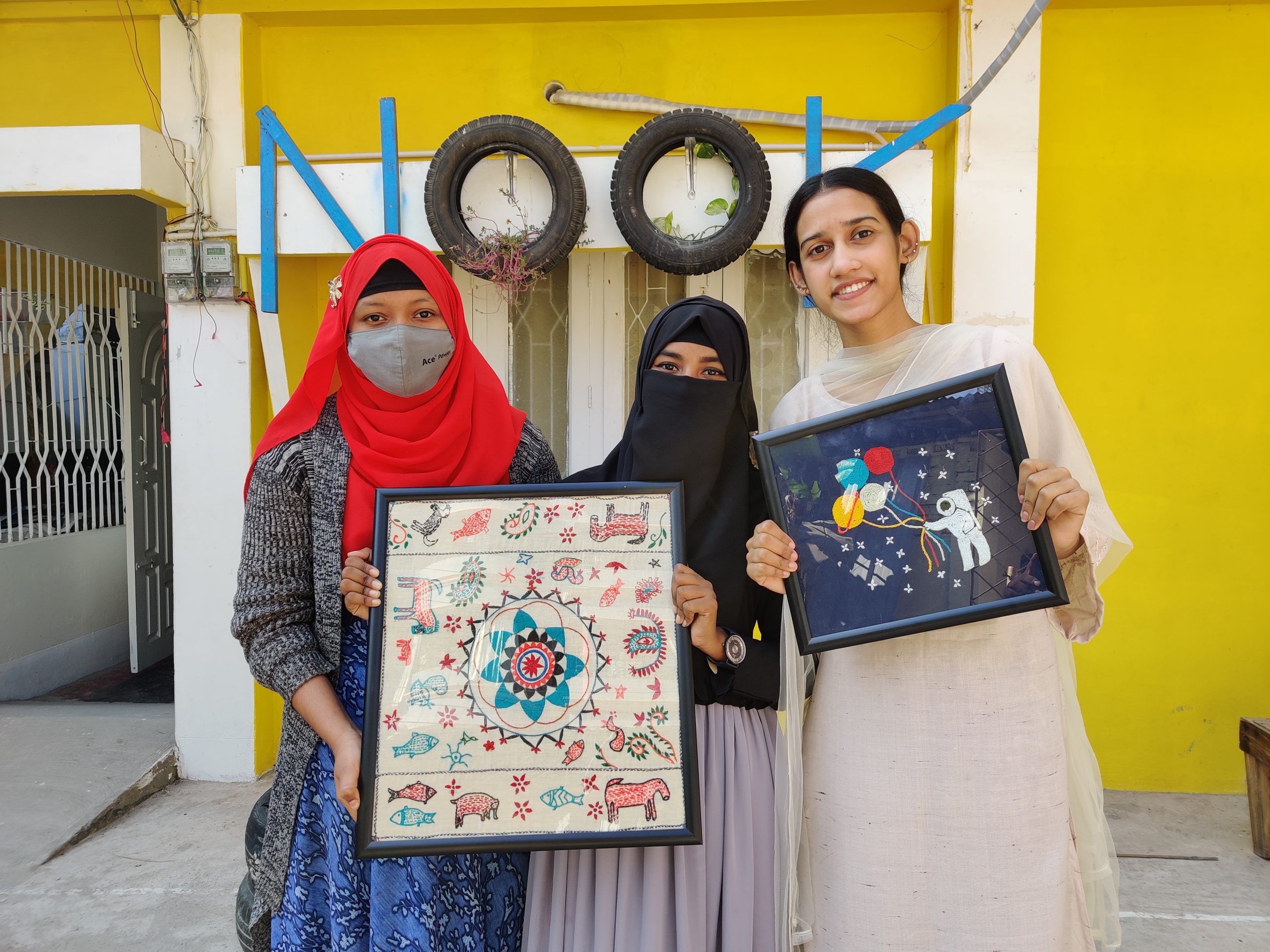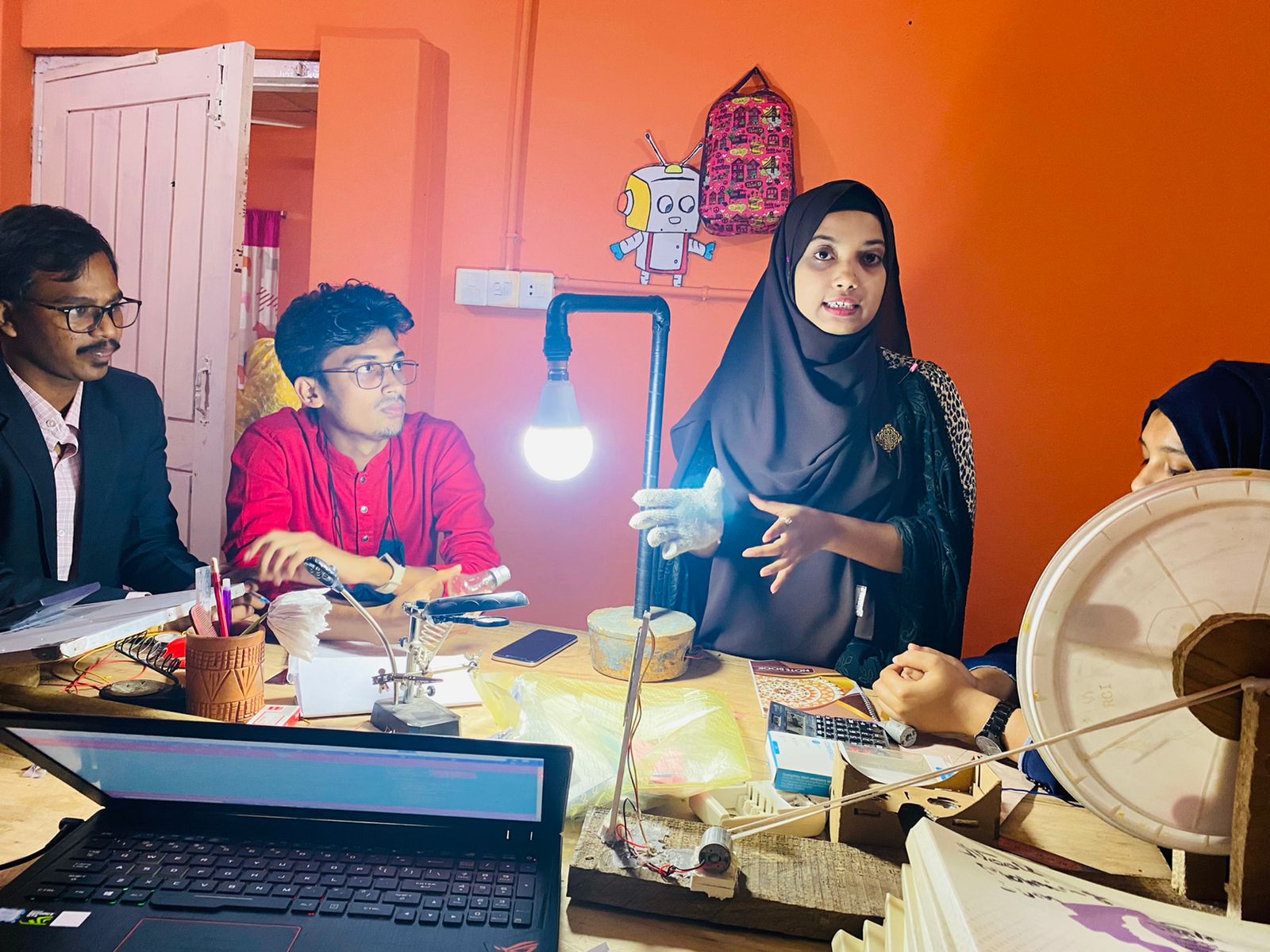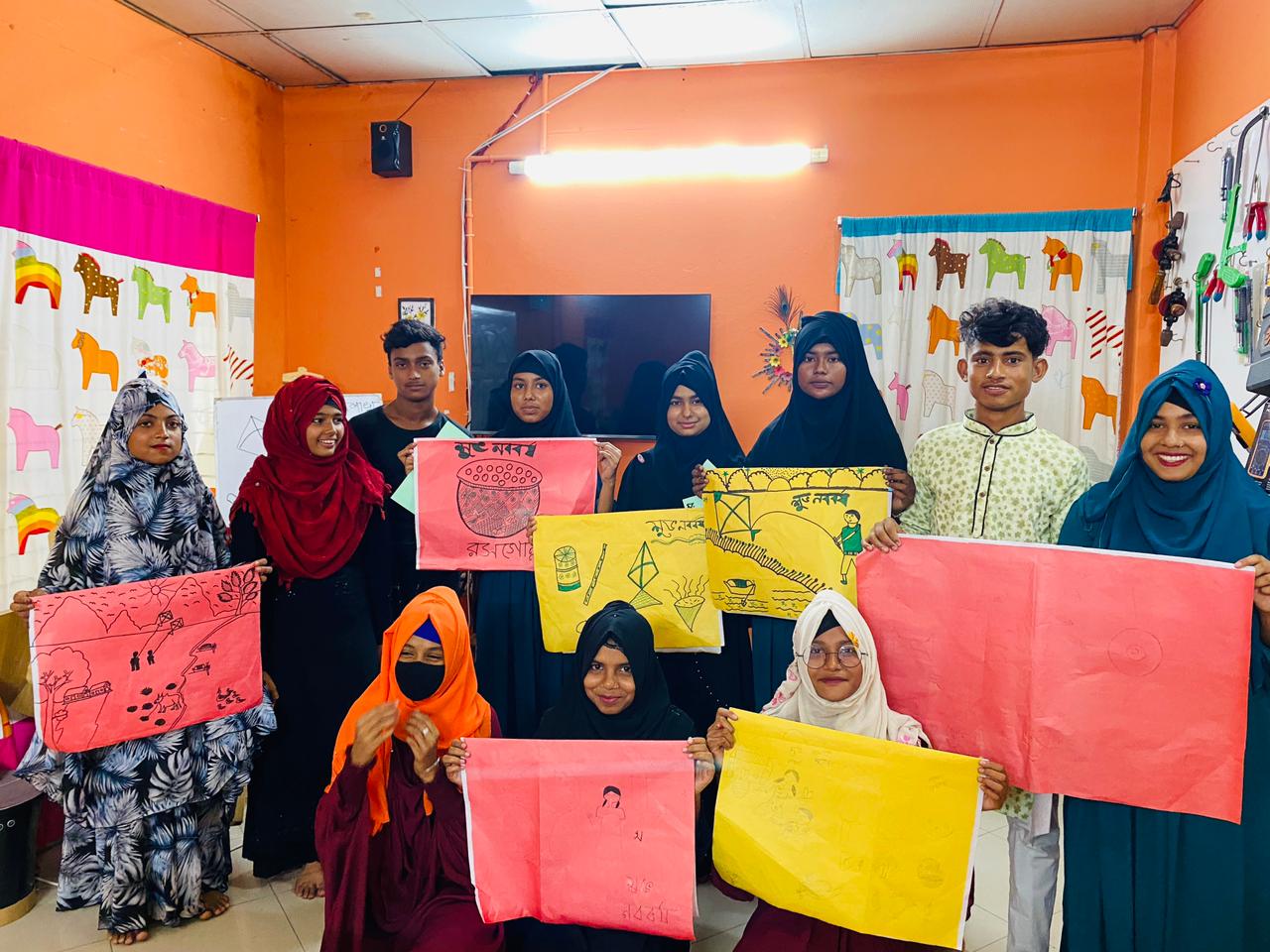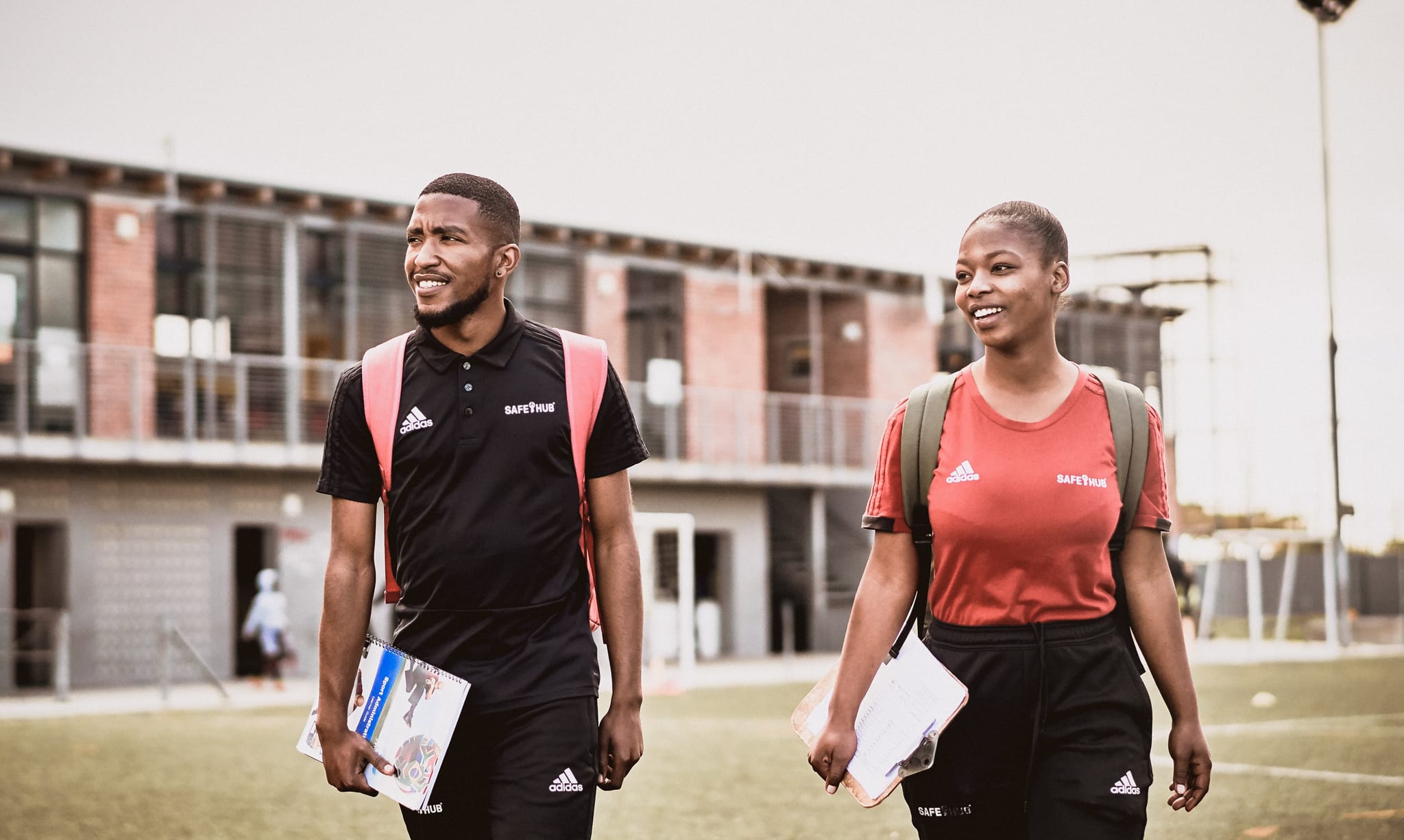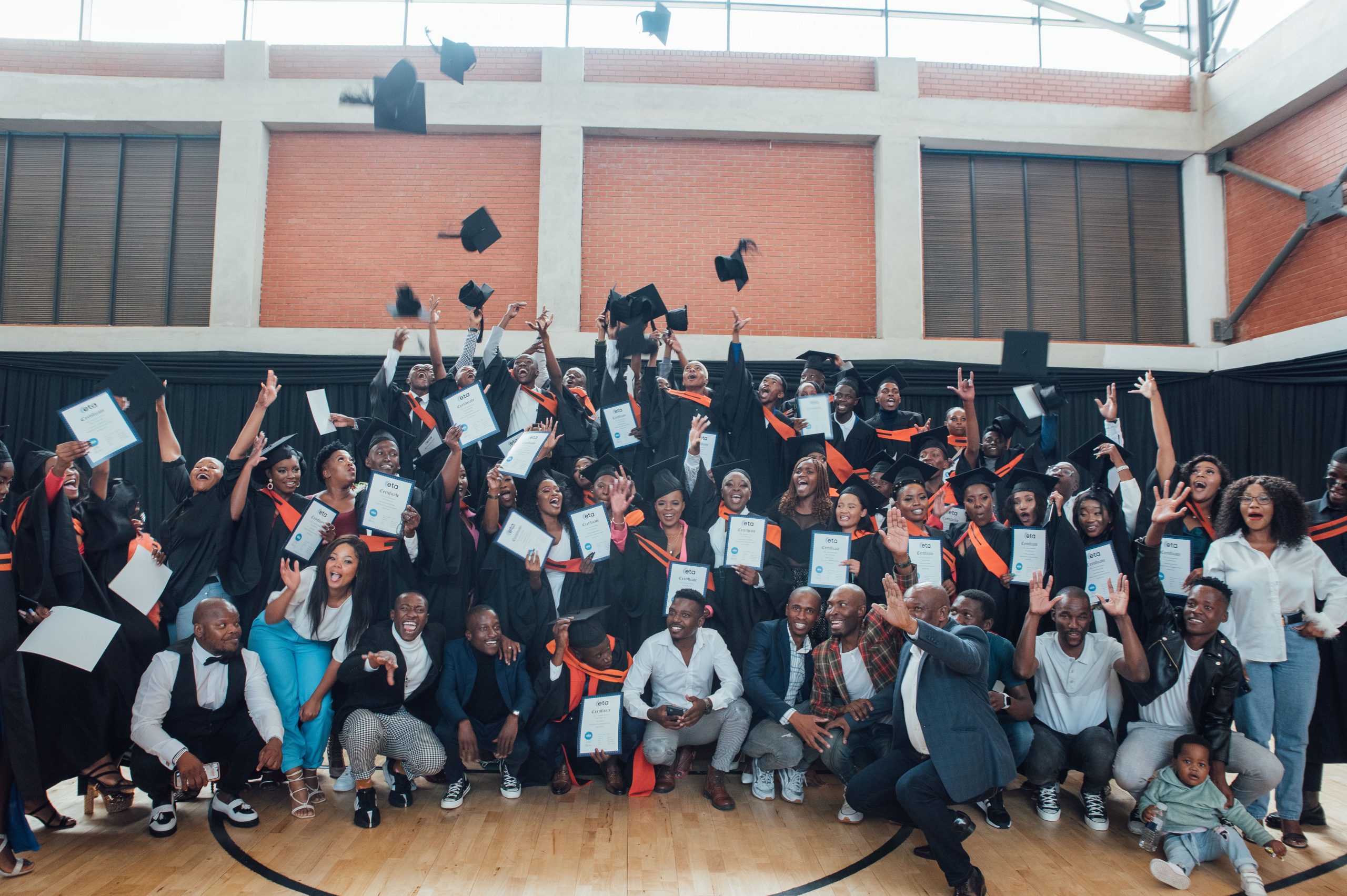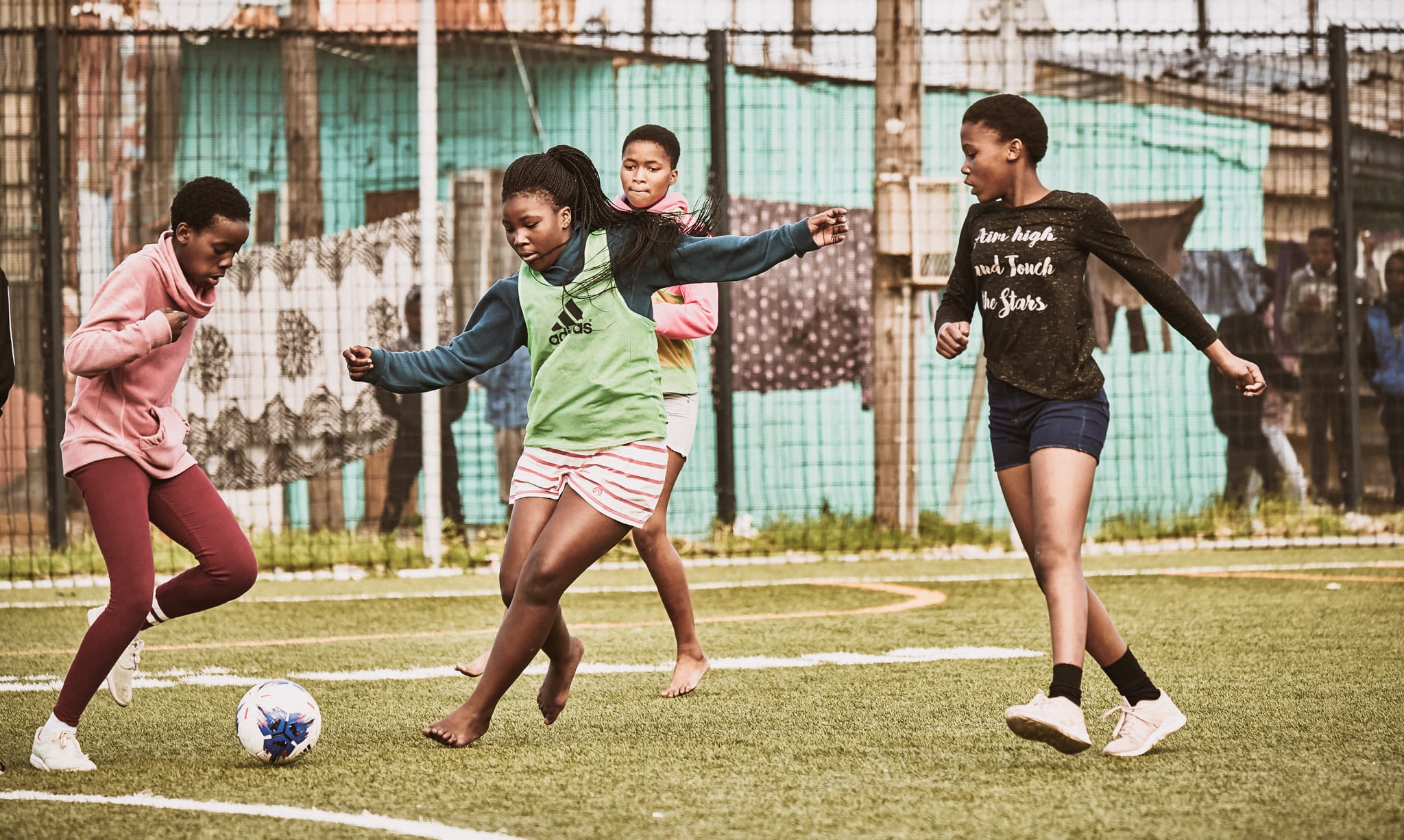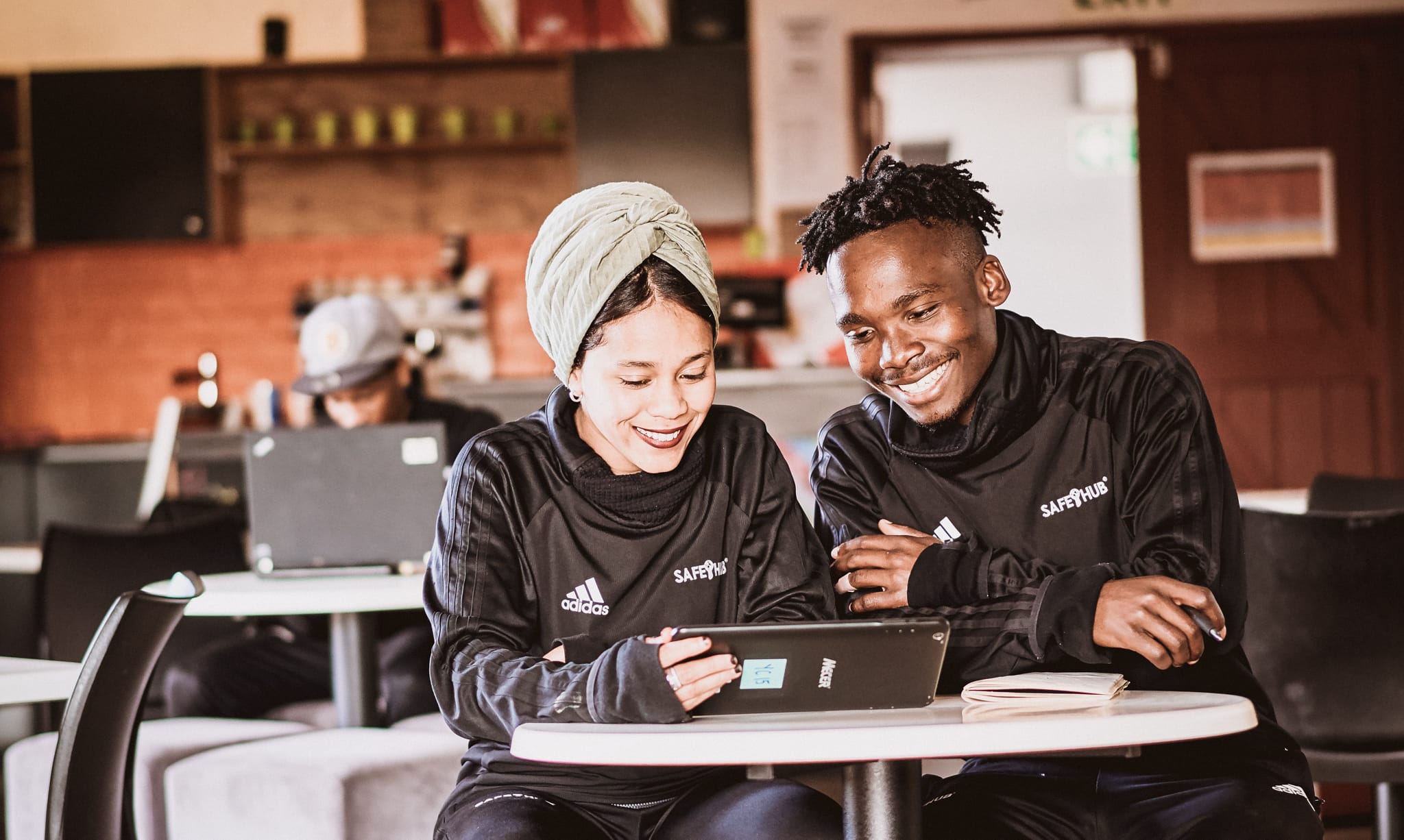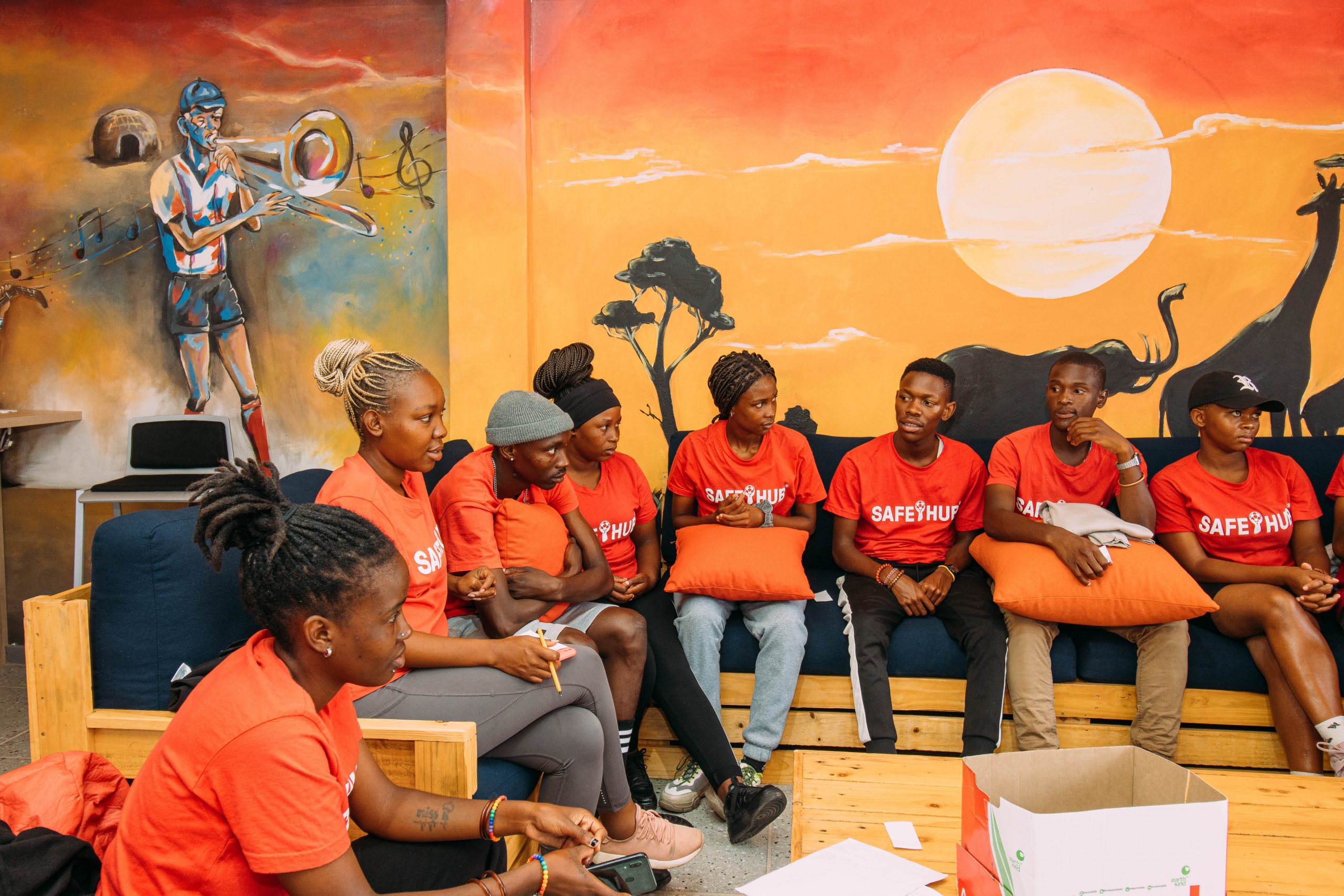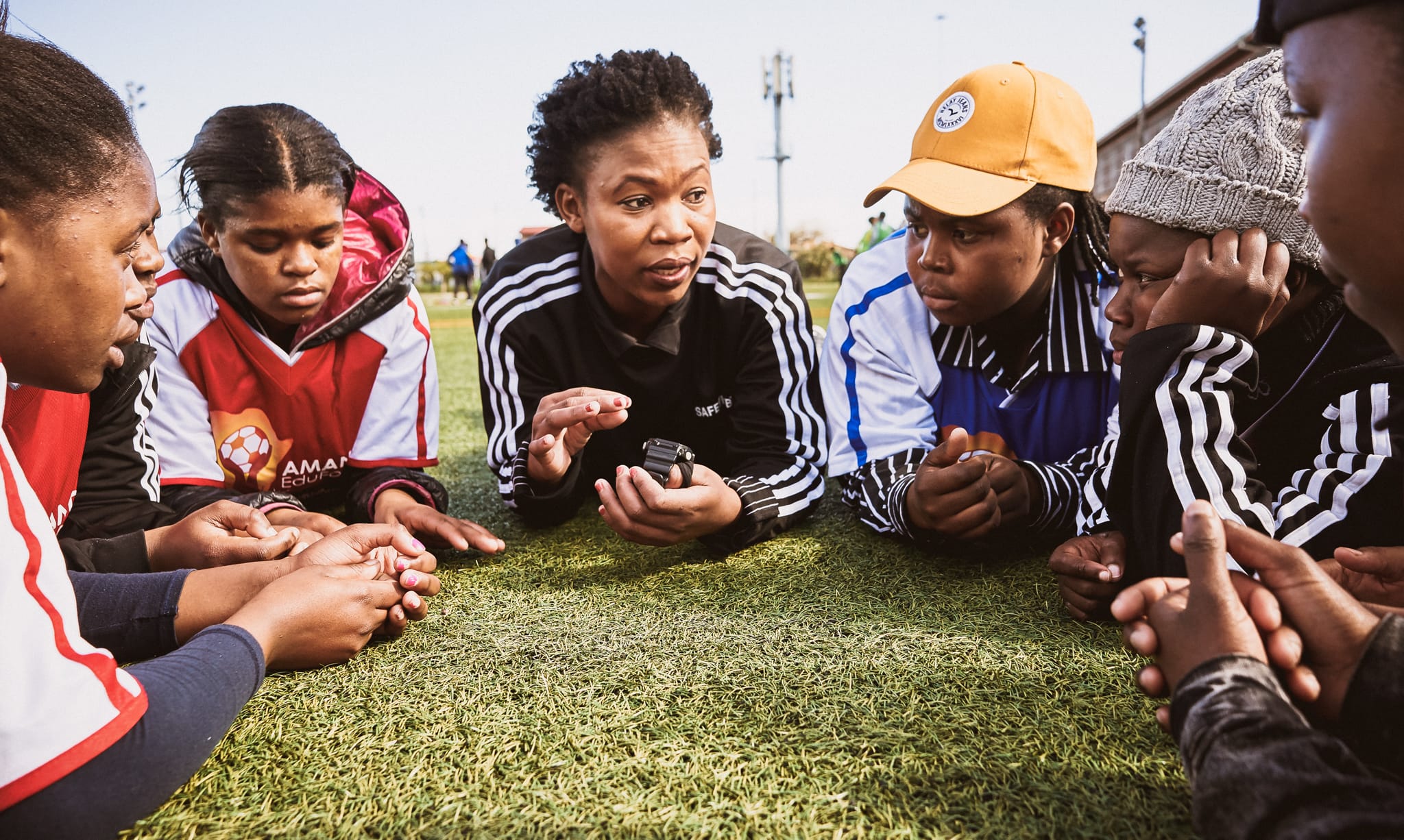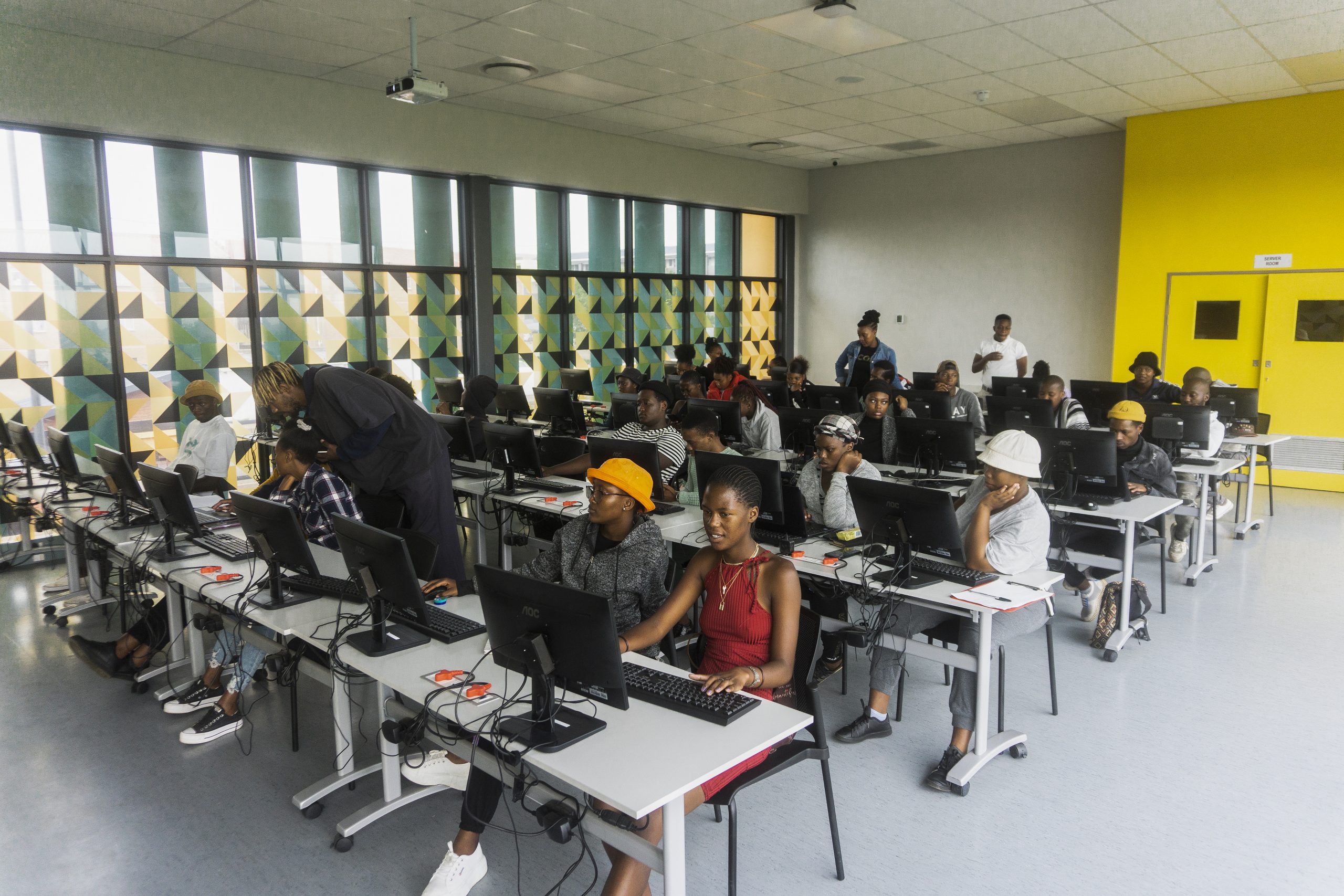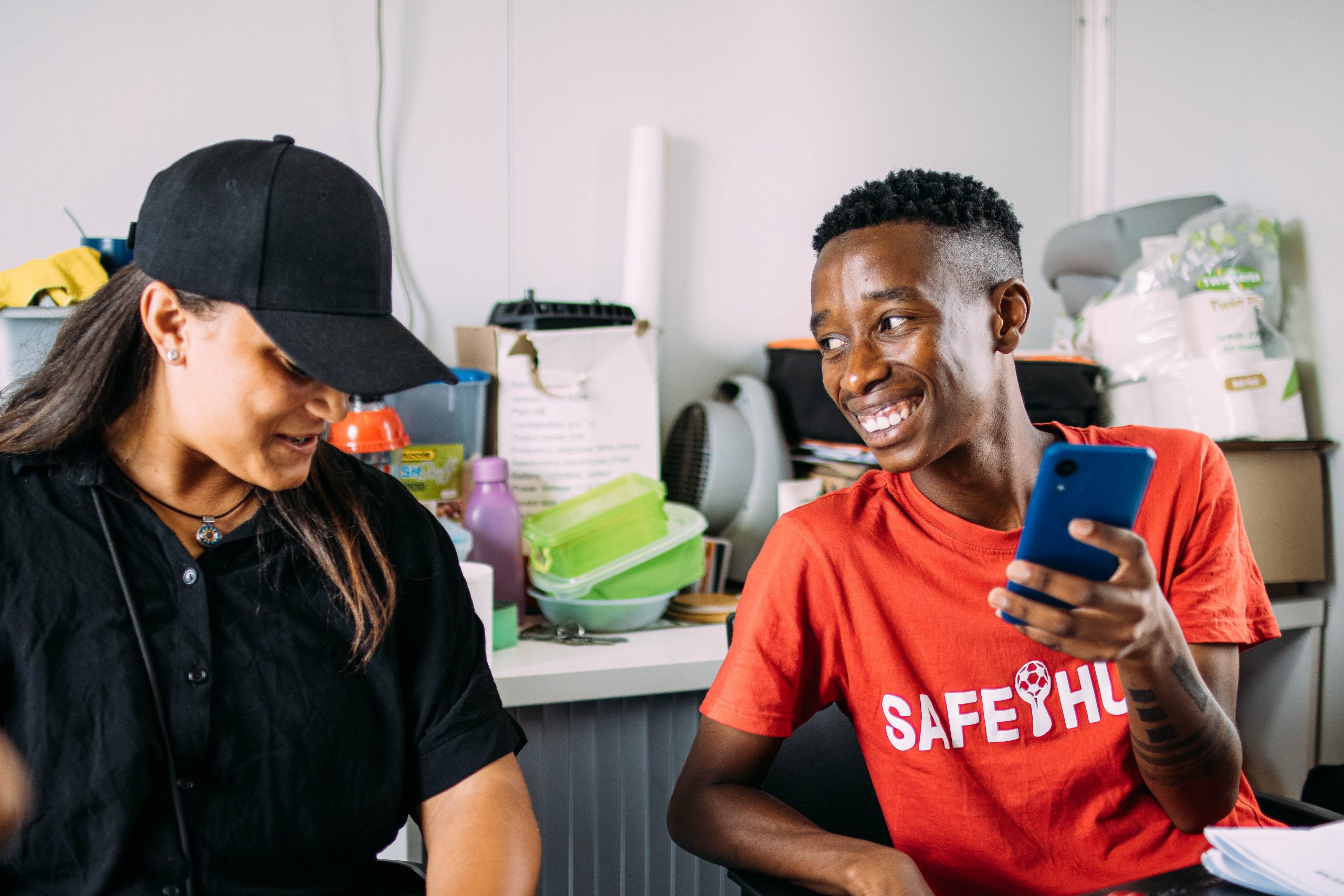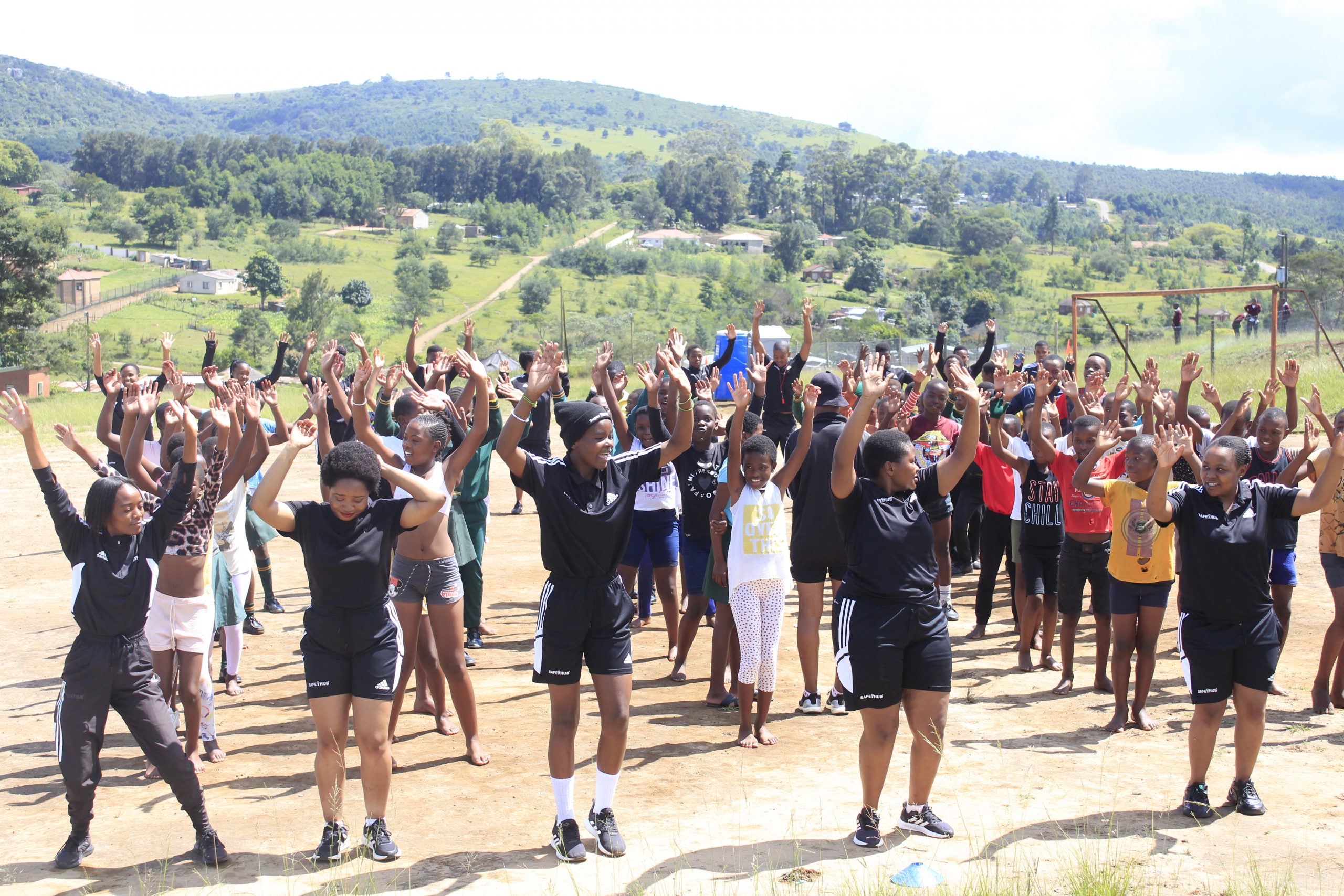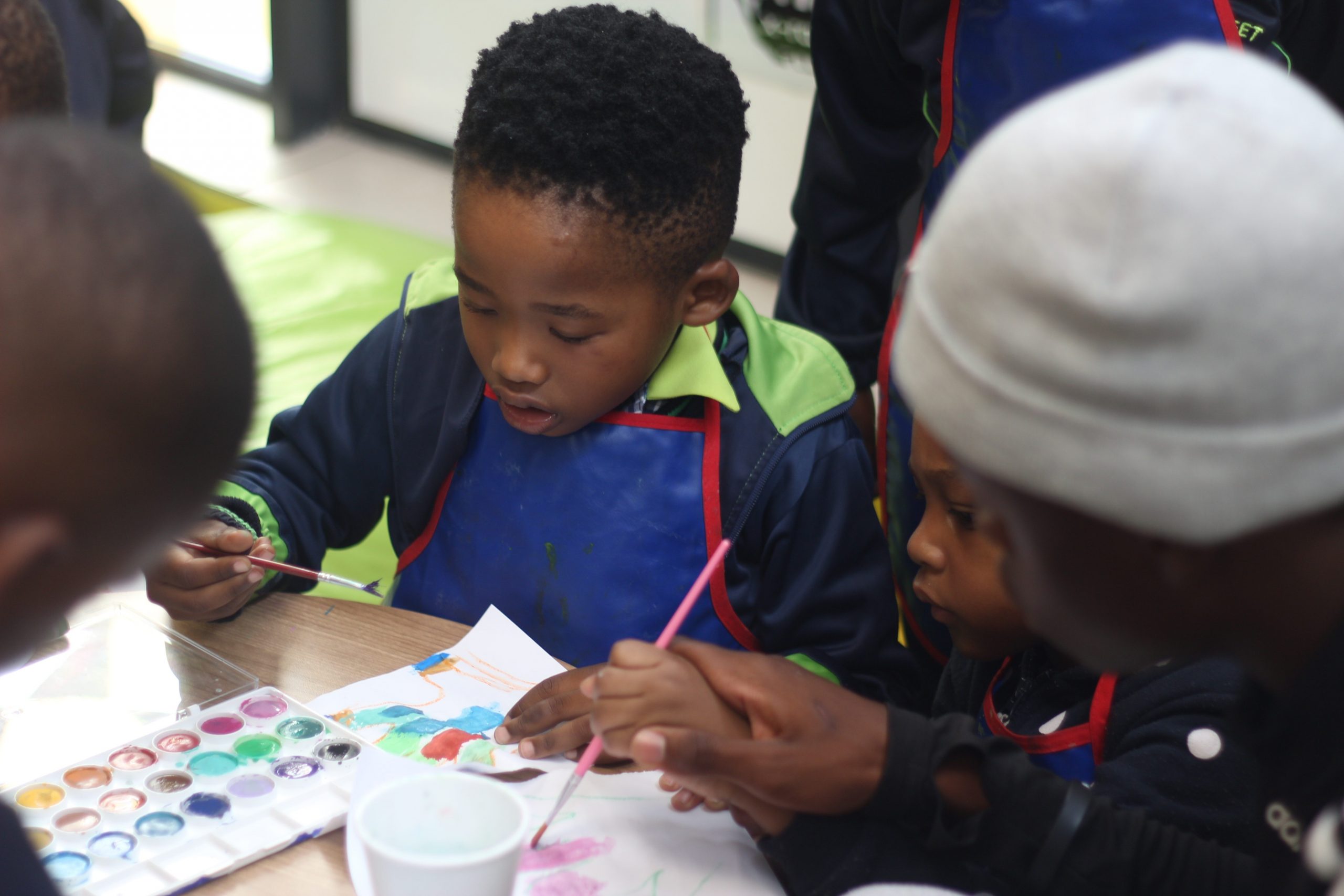Sri Lanka, a nation marked by a prolonged civil war and recurrent natural disasters, has encountered substantial impediments in its employment, innovation, and education domains.
Compounded by a traditional education system rooted in colonial ideals, Sri Lanka’s learners face theoretical-heavy, irrelevant curricula that stifle creative and critical thinking as well as the development of problem-solving skills. The absence of quality education offerings, especially in underprivileged communities, exacerbates this problem, thwarting STEAM (Science, Technology, Engineering, Arts, and Mathematics) education in particular.
This led Aravinth Panch – who left Sri Lanka when he was just 13 years old due to the civil war – to eventually return and, together with co-founder Kishoth Navaretnarajah, start the DreamSpace Academy in Batticaloa, a town located in the formerly war-torn eastern province of the country.
Aravinth and Kishoth had a shared vision of creating a self-sustaining, advanced, and inclusive platform where young innovators from marginalized backgrounds could bring their dreams to life. This led to the creation of the “DreamSpace Lifecycle,” a personalized empowerment programme aimed at nurturing the next generation of changemakers and fostering the development of innovative social and ecological impact ventures across Sri Lanka.
Unlocking Potential: The DreamSpace Lifecycle Program
The DreamSpace Lifecycle Programme is an 18-month journey that reshapes young lives, guiding them from disadvantaged youth to aspiring changemakers and impactful entrepreneurs. The transformative process unfolds across five key stages:
- “Changemaker Discovery“: The program commences with interdisciplinary workshops, identifying passionate individuals from marginalized, rural backgrounds who aspire to create positive change.
- “Challenge-based Learning“: Once identified, participants embark on a journey of skill acquisition. They engage in labs spanning various disciplines, from photography to biotechnology.
- “Grassroots Innovation“: Armed with specialized skills, the changemakers venture into their local communities for immersive research. This stage involves identifying pressing local challenges that they feel compelled to address.
- “Domain Expertise“: Collaboration with international experts propels participants to refine their solutions further. By combining global insights with local knowhow & context, they develop solutions that bridge the gap between vision and execution.
- “Impact-Venture Building“: The program culminates in the development of sustainable impact ventures. Changemakers transition from concepts to reality, building tangible solutions that balance their social mission with financial viability.
Yalini Pushpakanthan’s story is one example of the powerful impact of the Lifecycle Programme. Hailing from the remote village of Kathiravely, Yalini’s journey began with the realization of her passion for Green Technology during the Changemaker Discovery phase. As part of the DreamSpace Lifecycle Programme, Yalini’s vision was nurtured, and her commitment to combating plastic pollution ignited.
In the Challenge-based Learning phase, Yalini’s expertise was cultivated through interdisciplinary exploration specializing in the Bio Lab. In the subsequent Grassroots Innovation phase, she embarked on a journey of research and innovation centering around the palmyra fruit that is frequently found in her village.
In the further stages of the program, DreamSpace Academy equipped her with a comprehensive, multidisciplinary skillset that merged life sciences, technology, entrepreneurship and environmental consciousness. This transformation culminated in “Kathira Greens,” Yalini’s impact venture. It is a manifestation of her dedication to combatting plastic pollution through the creation of sustainable packaging solutions derived from palmyra pulp.
The support of the knodel foundation enables 40 aspirational changemakers such as Yalini to go on their own transformative journey, create sustainable livelihoods while solving important social and ecological challenges, and ultimately contribute to a better Sri Lanka and a more sustainable world.
Background
Every year, millions of young people flood onto the African labour market. But in most regions of the African continent, there are not enough jobs for them. Even university graduates often can’t find employment. The Kabakoo founders Michèle Traoré and Yanick Kemayou have experienced this first-hand – in search of better opportunities, they emigrated to Europe. However, in 2018 they decided to return home to Mali and contribute to fixing the problem which forced them into migration: The lack of locally relevant and high-quality learning opportunities which at the same time are affordable for the masses.
Innovations “Made in Mali”
Kabakoo Academies has crafted an unconventional offering through a learning approach focused on local impact and the integration of local knowledges with cutting-edge technologies. Overall, Kabakoo’s approach to education is challenge-based: The learners set out to solve a local problem that they have identified themselves. To help them design sustainable solutions for these issues, Kabakoo provides them with technology-based tools (for example 3D printers and IT programmes), local trainers, and a global cooperation network.
By acquiring skills across innovative areas such as rapid prototyping, robotics, programming & web design, or even in the field of biotechnology, groundbreaking projects and sustainable livelihoods for the local population are created. Supported by Kabakoo trainers on site and specialists worldwide, learners develop viable business models, such as for the sustainable utilisation and marketing of shea butter, an easily available local raw material. Other teams are working on an automated irrigation system for local agriculture, a low-cost tool for monitoring local air quality, a new approach to municipal waste recycling, or the development of low-cost, 3D printed prostheses.
Thanks to these and other innovations, Kabakoo has been recognised by UNESCO as one of the most innovative and groundbreaking learning organisations and selected by the World Economic Forum as a global pioneer for the future of learning.
Since its launch in 2018, Kabakoo has accompanied almost 3,000 young people in West Africa who are now stewarding thriving local communities and ecosystems. Working together with the knodel foundation and other supporters, Kabakoo aims to annually serve hundred thousand of young Africans in a dozen cities by the end of the decade.
Background
Free access to education is a basic requirement for the full development of our possibilities. But it also depends on what kind of education we receive. This can be seen, for example, in the fact that – despite drastically rising school enrollment rates worldwide – global inequality is continuing to rise. This is also due to an education system (developed in times of the industrial revolution) that is geared to educate docile, passive workers instead of creative, independent, and critical thinking people.
In Bangladesh, as in many countries of the global South as well as in the North, the quality of educational opportunities is also strongly dependent on social background. As a result, people from socially and economically disadvantaged communities often have little chances of breaking out of the cycle of poverty.
Nooks or centres for self-determined learning want to fundamentally change this situation: Supported by a facilitator and equipped with laptops, internet, technology, electronics and tools as well as with various, often recycled materials and resources, they enable disadvantaged youth to create their own learning projects.
Learning whatever you want
Through the two-month introductory program to self-directed learning and three-month project cycles in which learners realize their own ideas and projects, they acquire concrete new skills and knowledge. From what they learn, they can develop new ideas and create independent initiatives and unique projects, which enable the learners to find and create new livelihoods for themselves and others, as well as to improve the local community.
If you visited one of the learning centres you would meet, for example, a young girl learning English with the help of various online tools; a boy whose dream is to produce a drone with affordable materials; the son of a farmer experimenting with organic fertilizers to improve his family’s income; or a group of young people who want to develop and market environmentally friendly products.
Unlike schools, there is no competition in Nooks and no false ambition to be better than the other. Instead, learners support each other and learn with each other instead of against each other. Inter-generational learning also plays an important role here, where people of all ages can learn together – and not be separated by age group as in school.
The Nook concept originates from the Indian organization Project DEFY (Design Education For Yourself), which is already successfully implementing the model in India and several African countries. Barishal City Nook is run by the Barishal Youth Society (BYS). BYS is the largest youth organization in the south of Bangladesh with 10000 active members. A main focus of the organization are projects in education, gender equality and sustainable development.
Many young people in South Africa grow up in difficult conditions and are affected by precarious socioeconomic circumstances. These include low incomes, cramped or unsafe housing, substance abuse and high rates of crime and violence, especially against girls and women. In addition, young people often lack positive role models. Furthermore, they have very limited opportunities to access quality and relevant education. Youth unemployment is particularly high in South Africa, with over 50% of people under 35 being unemployed.
The Safe-Hubs designed for these young people ensure their emotional and physical wellbeing and personal growth. Through sports activities, they gain new self-confidence and acquire social skills. With the “PlayMaker program” in the Safe-Hubs, they can simultaneously take advantage of a wide range of training opportunities, health and education courses, and personal development opportunities.
Bringing education, health and entrepreneurship together
All South African Safe-Hubs are located in townships communities. Located outside of city centres, townships are informal housing settlements that were created during apartheid to exclude people of color from white cities. The lingering effects of apartheid are still palpable here, as structural inequality is pervasive. Therefore, in order to create equal opportunities, interventions like the Safe-Hub model are needed. As an educational and sports campus in and for township communities, each Safe-Hub aims to ensure that every young person can access equal opportunities and realize their full potential. To this end, the Safe-Hubs and their diverse programs address the root causes of poverty, unemployment, health and educational inequality.
These services include psychosocial counseling, business incubation courses that serve as a springboard for local start-ups, and the specialized EduFootball program, which imparts important values and soft skills through sports. Another essential component of the Safe-Hub infrastructure is the Digital Lab, where young people not only develop important digital literacy skills but also learn programming languages or receive training in online marketing.
To further address high rates of youth unemployment, the Safe-Hubs offer various job readiness and employability programs, such as the PlayMaker program. In this year-long program, young adults become mentors to teenage participants who benefit from the support and advice of positive role models in their immediate environment. PlayMakers also take part in personal development, IT skills, and job application workshops.
Over the last 15 years, AMANDLA has demonstrated the impressive impact of its model: in the catchment area of the first Safe-Hub in Khayelitsha, contact crime has decreased by 44%, while participants in the primary school program have shown an average improvement of 49% in their academic results. Safe-Hubs have provided permanent employment or training opportunities to 90% of participating youth who were previously not engaged in employment, education, or training.
The knodel foundation has been supporting the social business organization AMANDLA since 2020 and is actively promoting the scaling of its Safe-Hub model in South Africa, with a goal of operating 15 Safe-Hubs nationally by 2026, reaching up to 200,000 children and young people.
